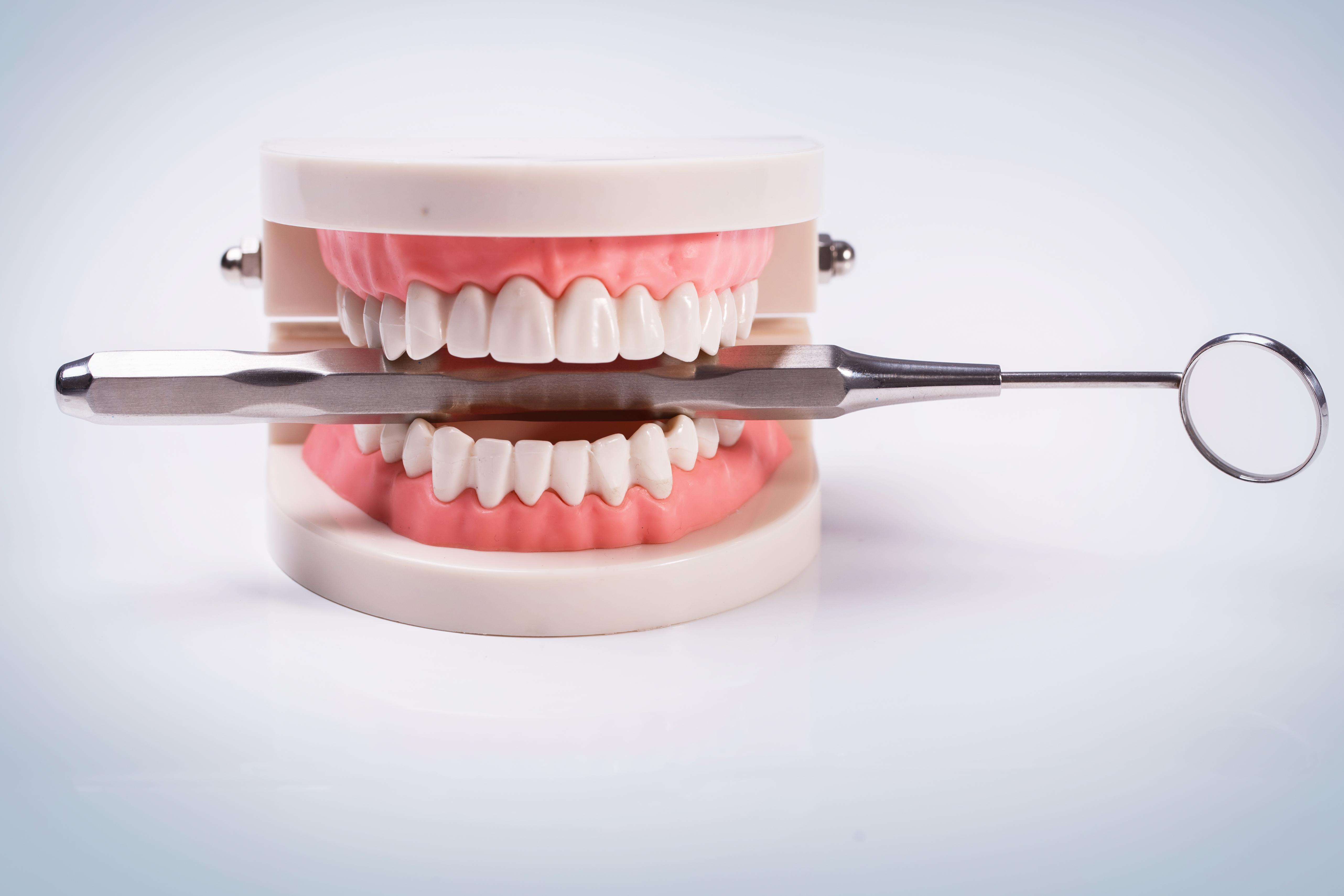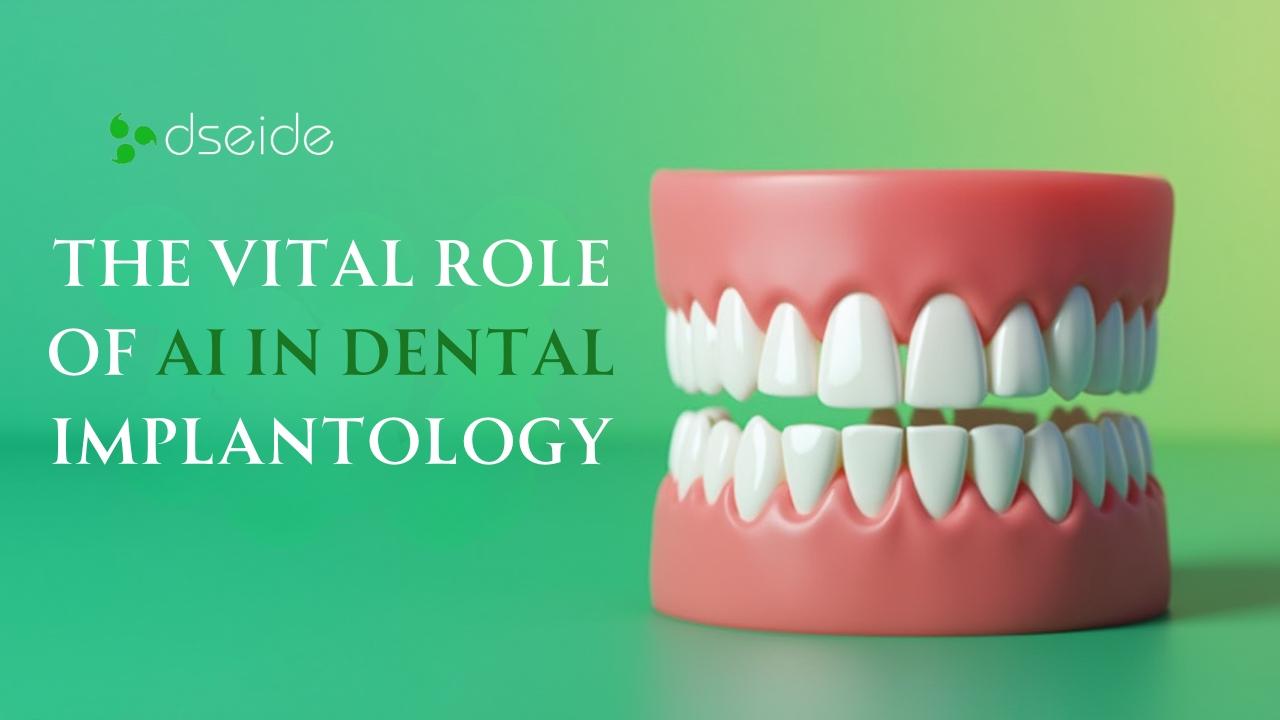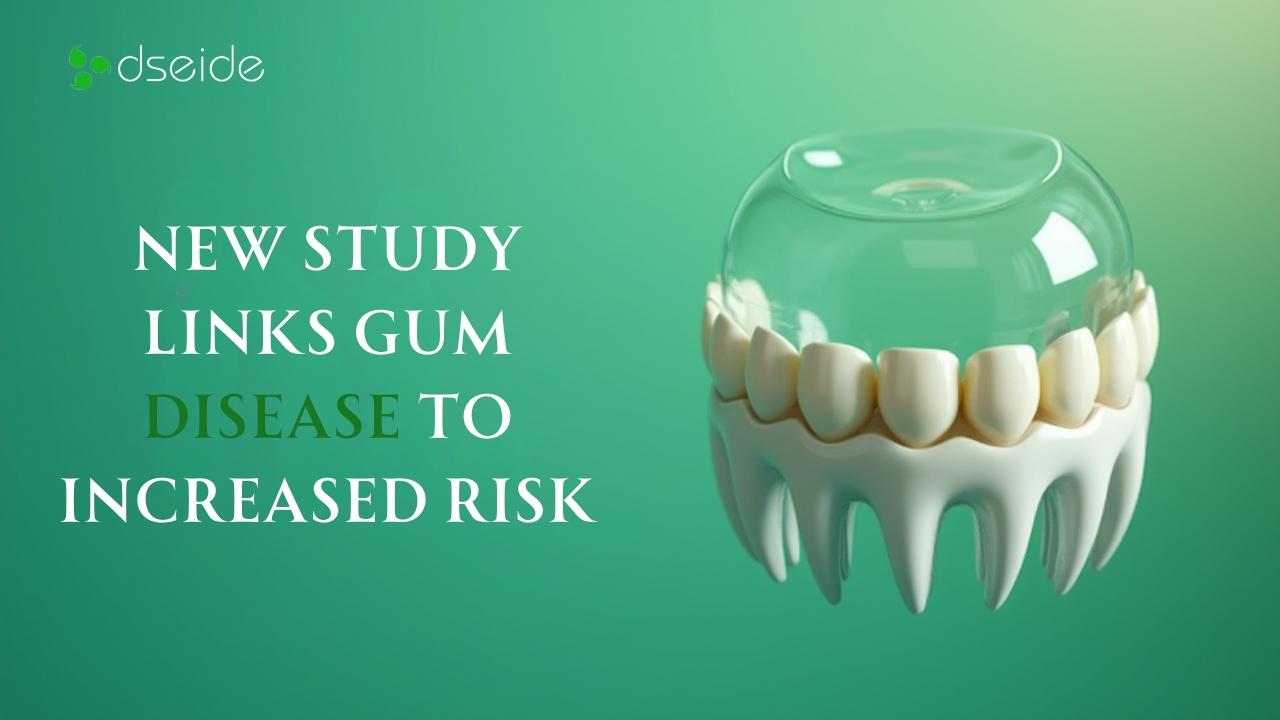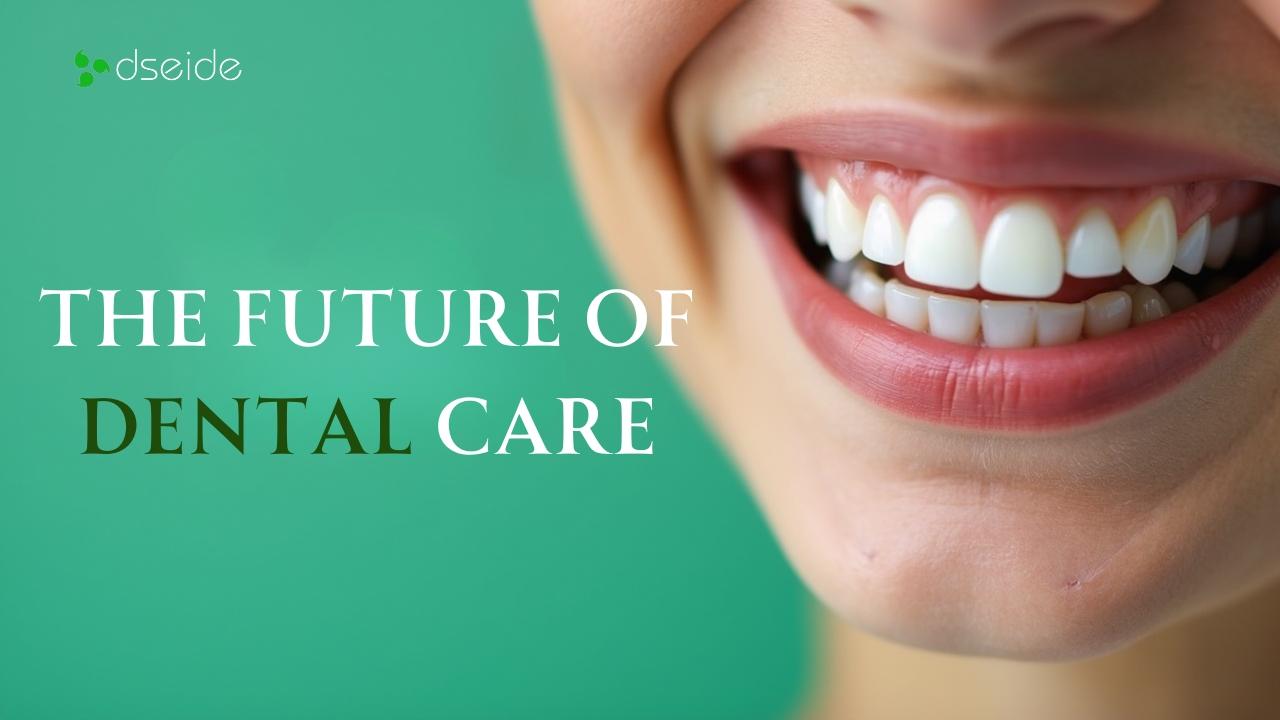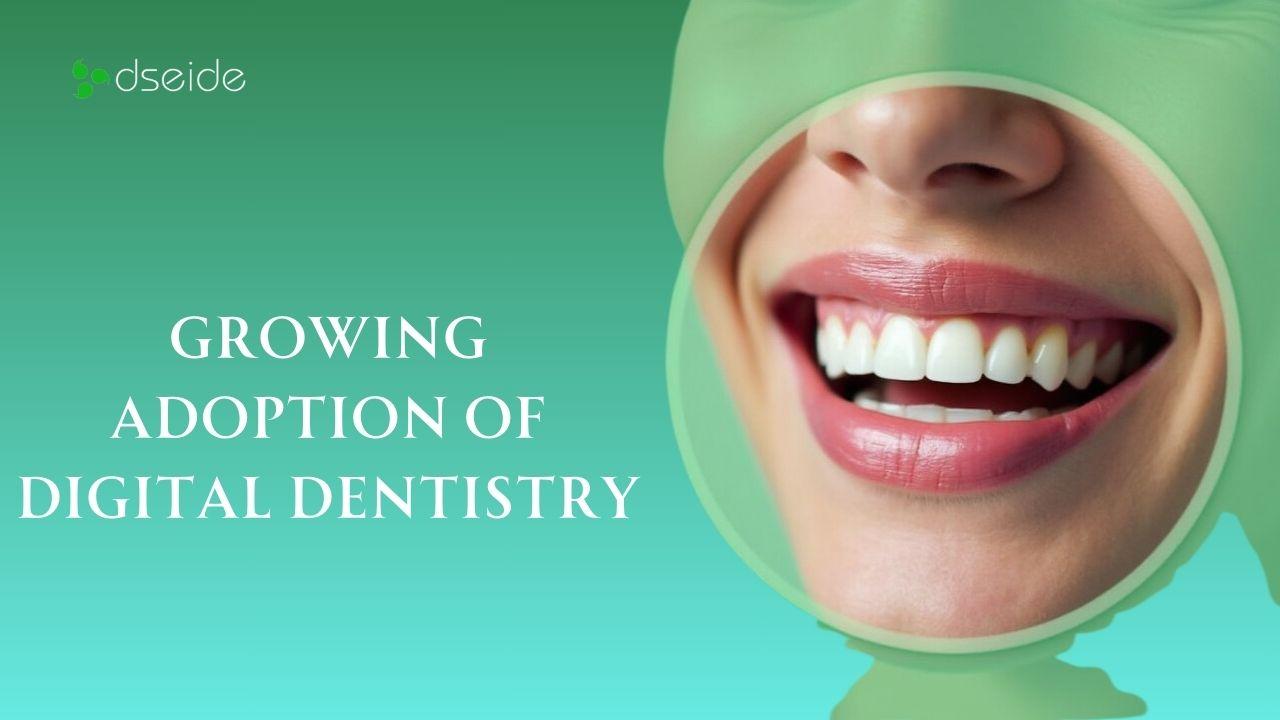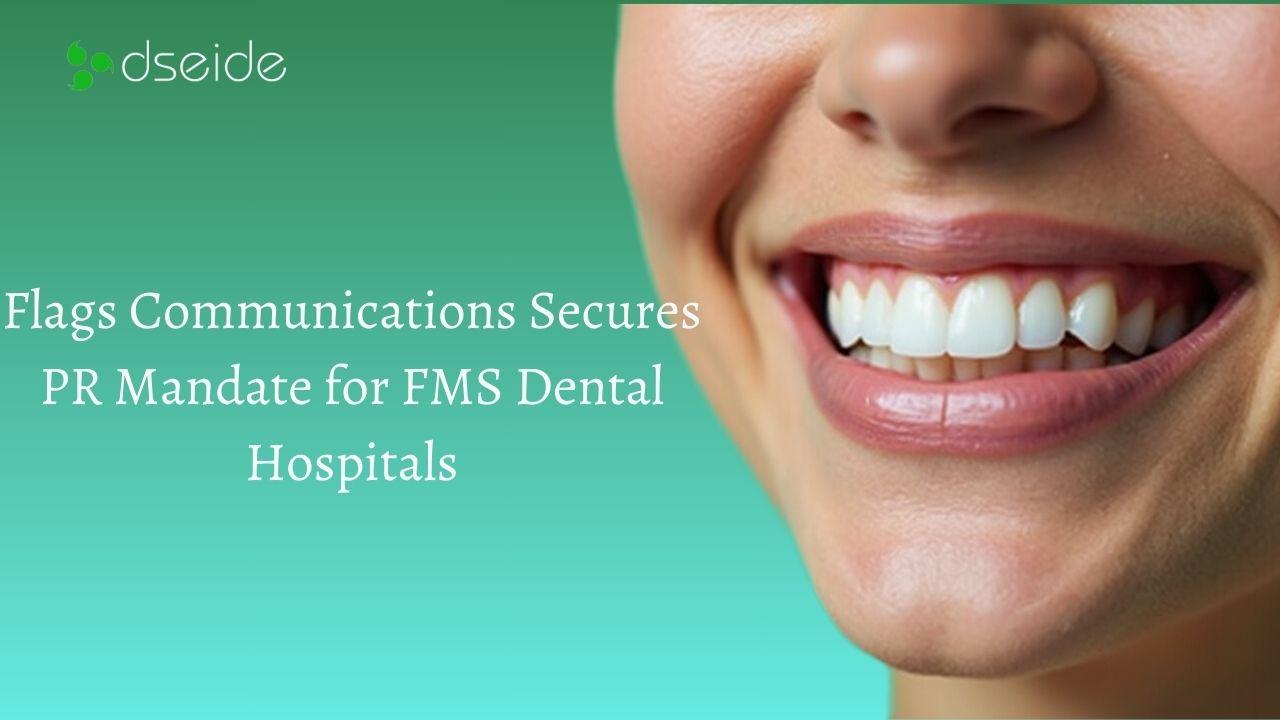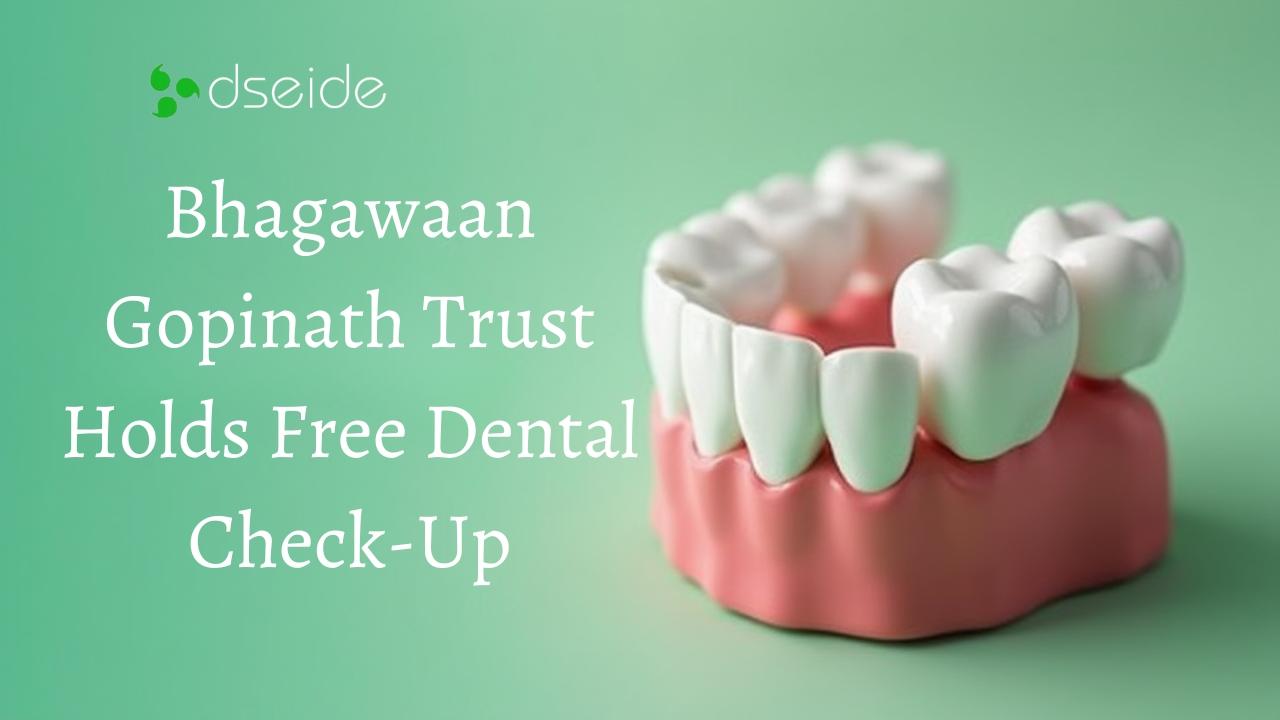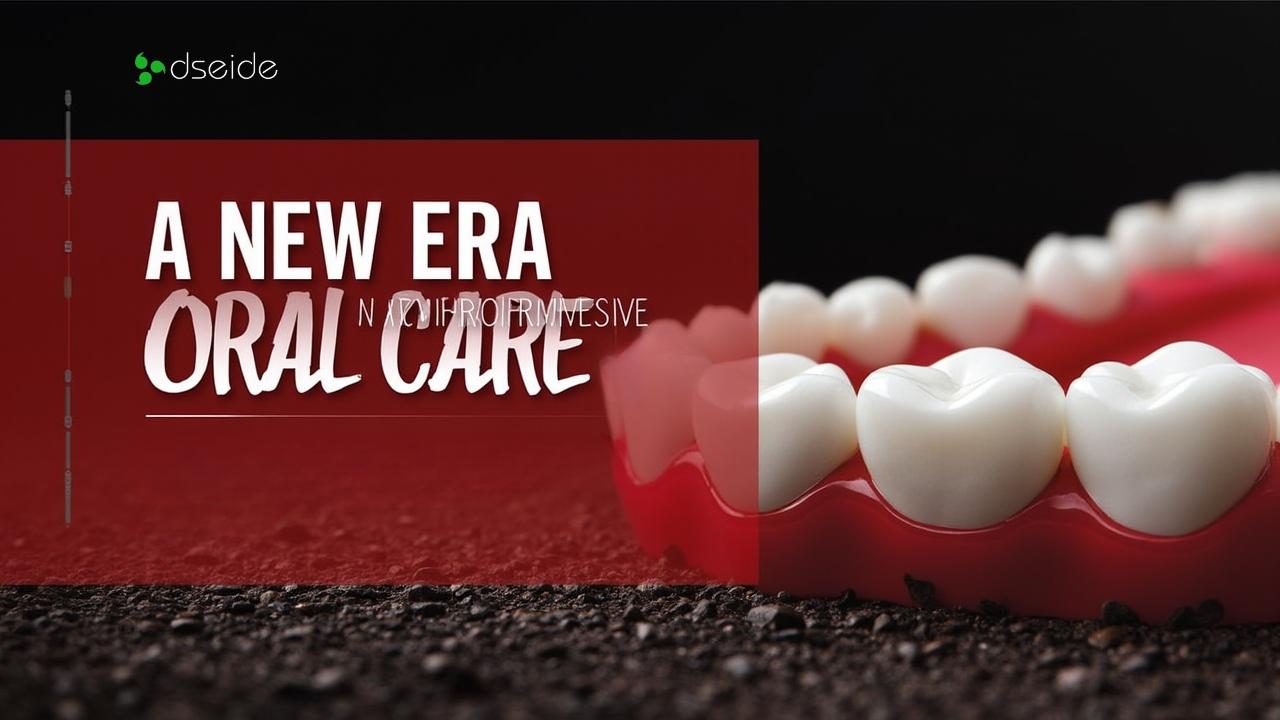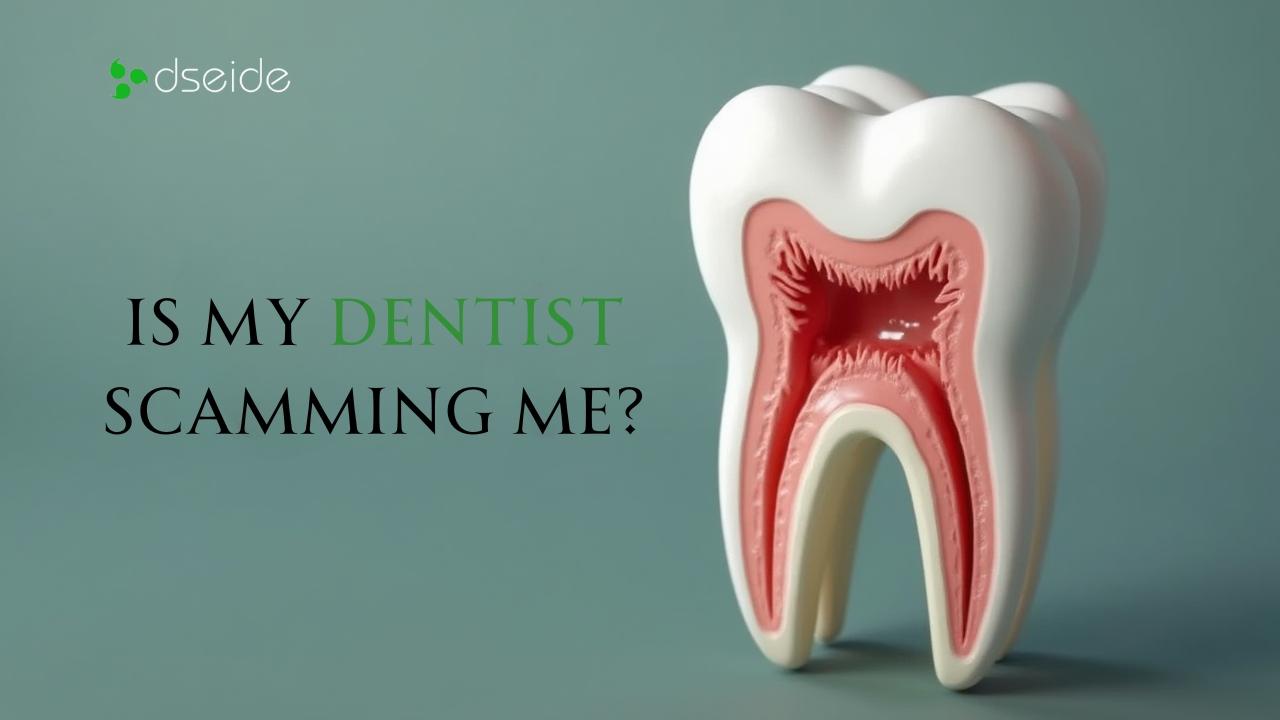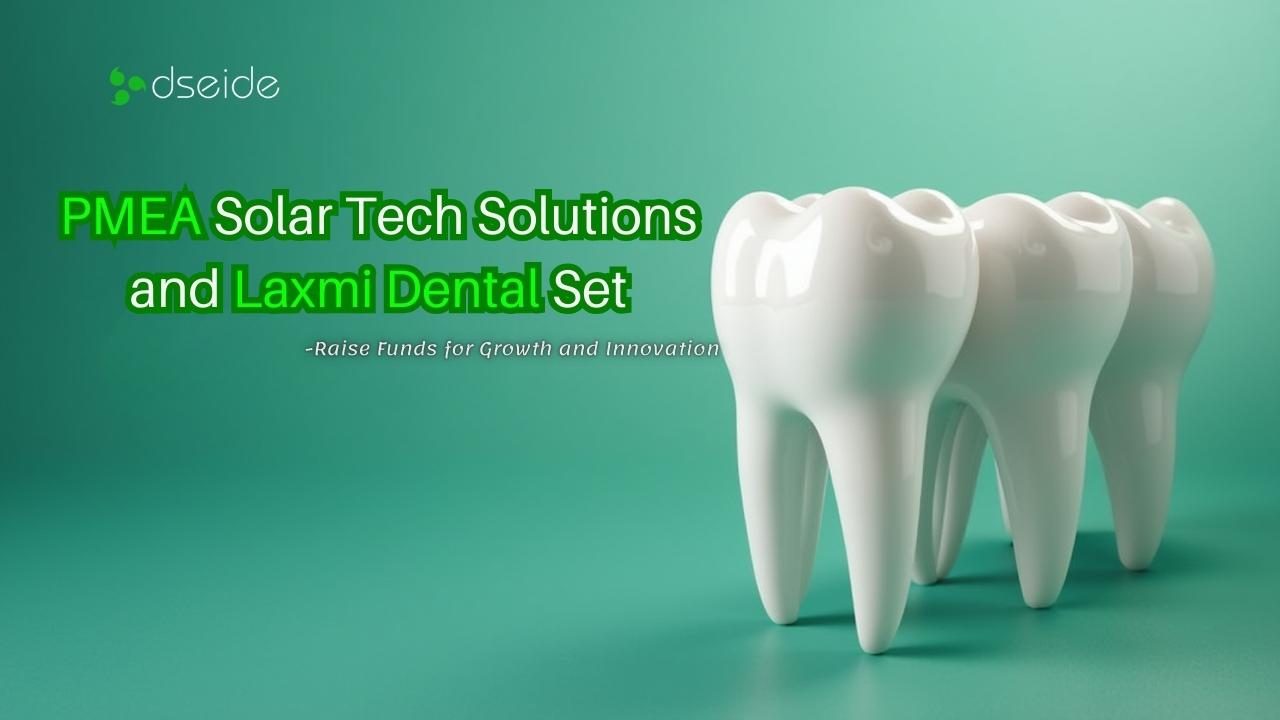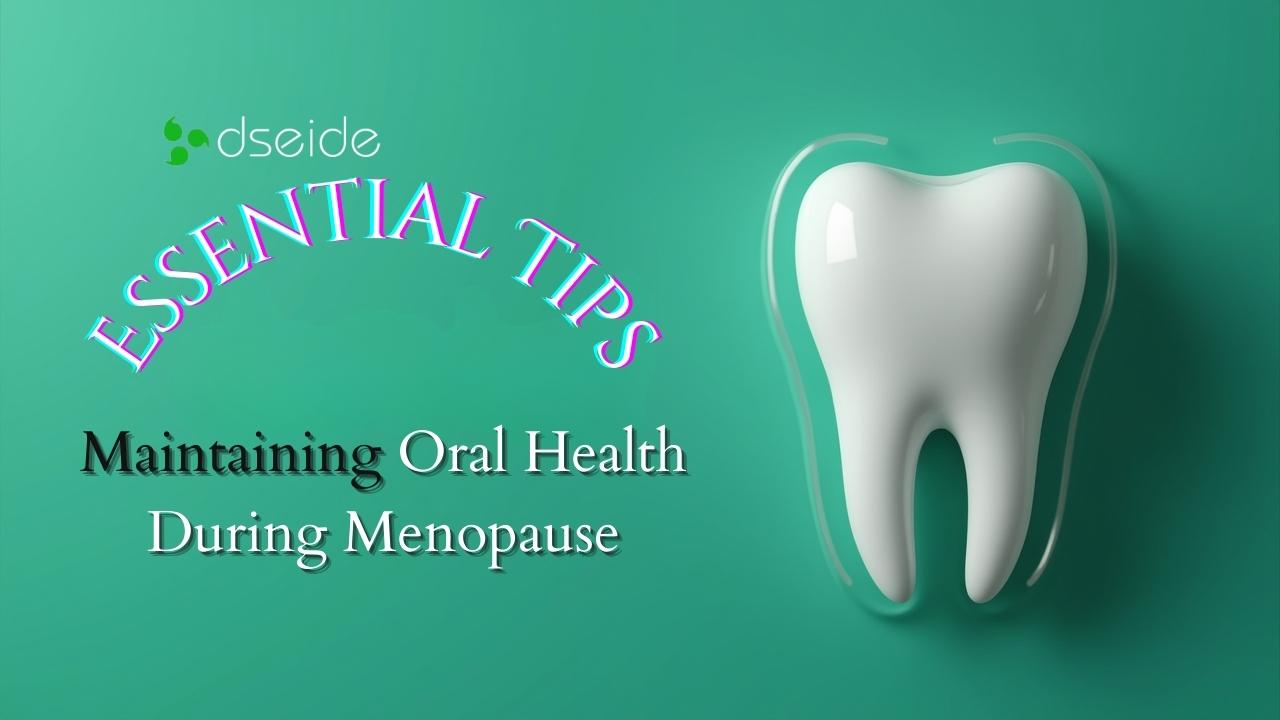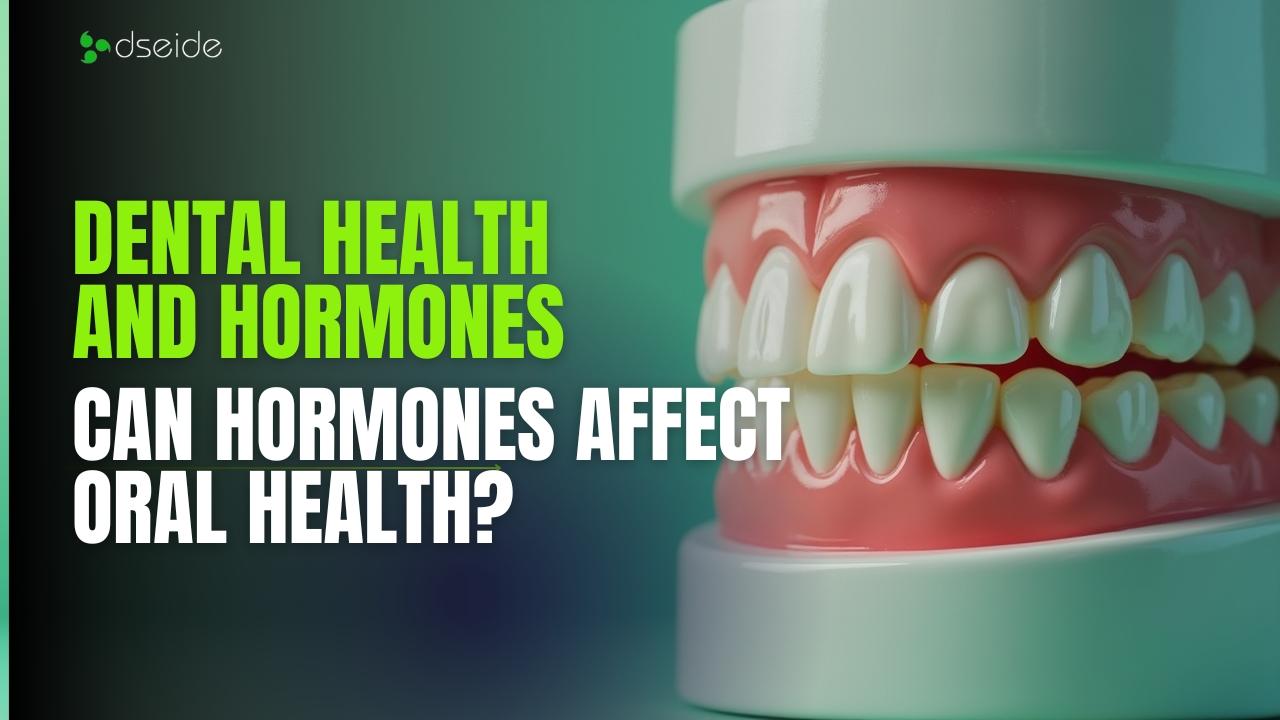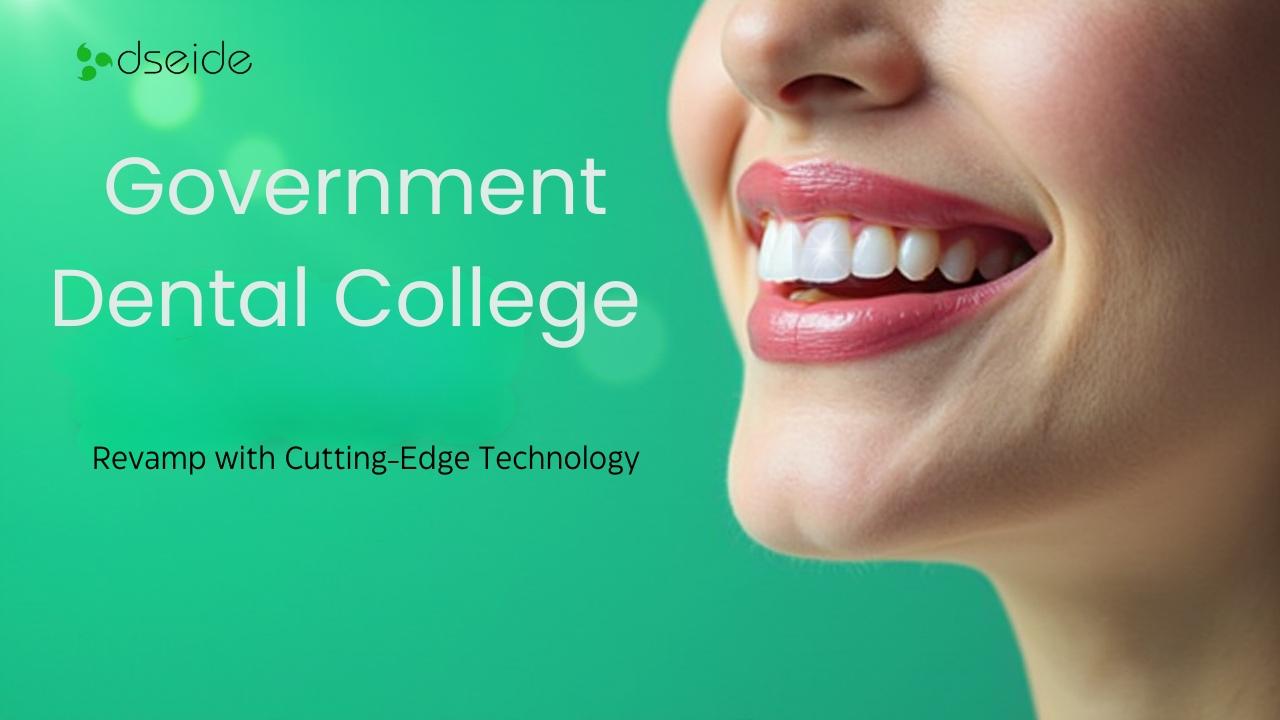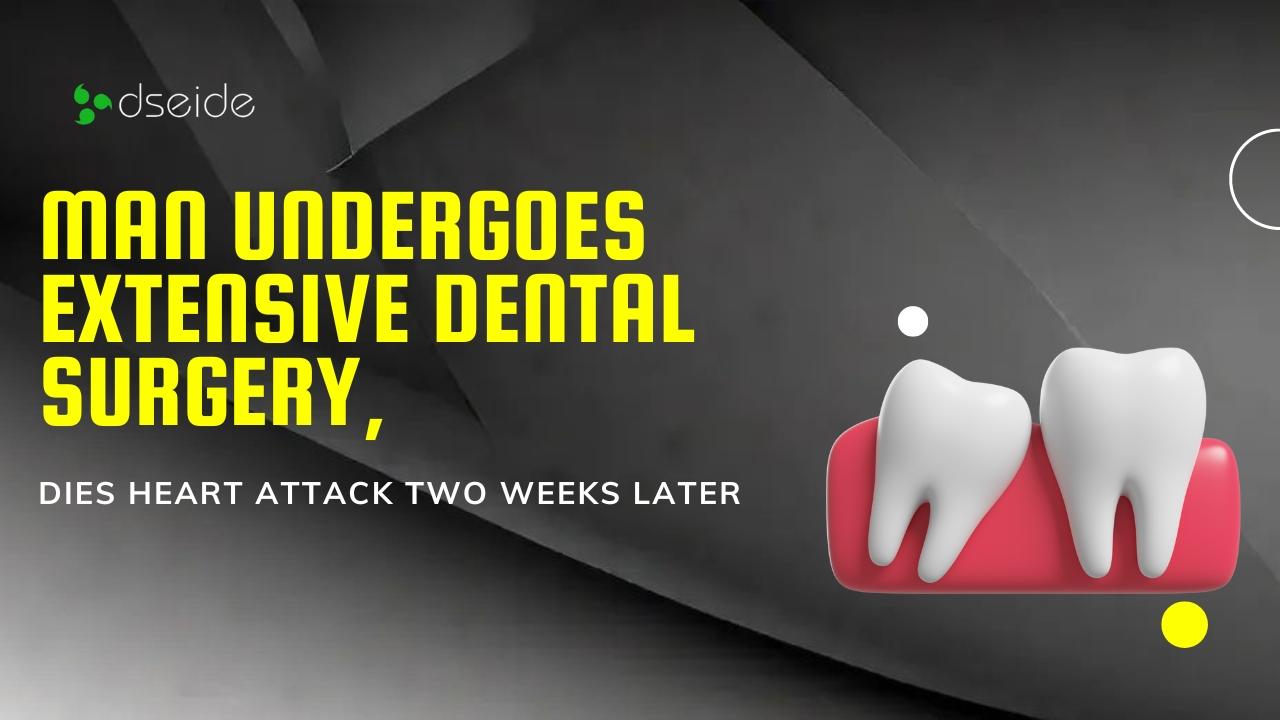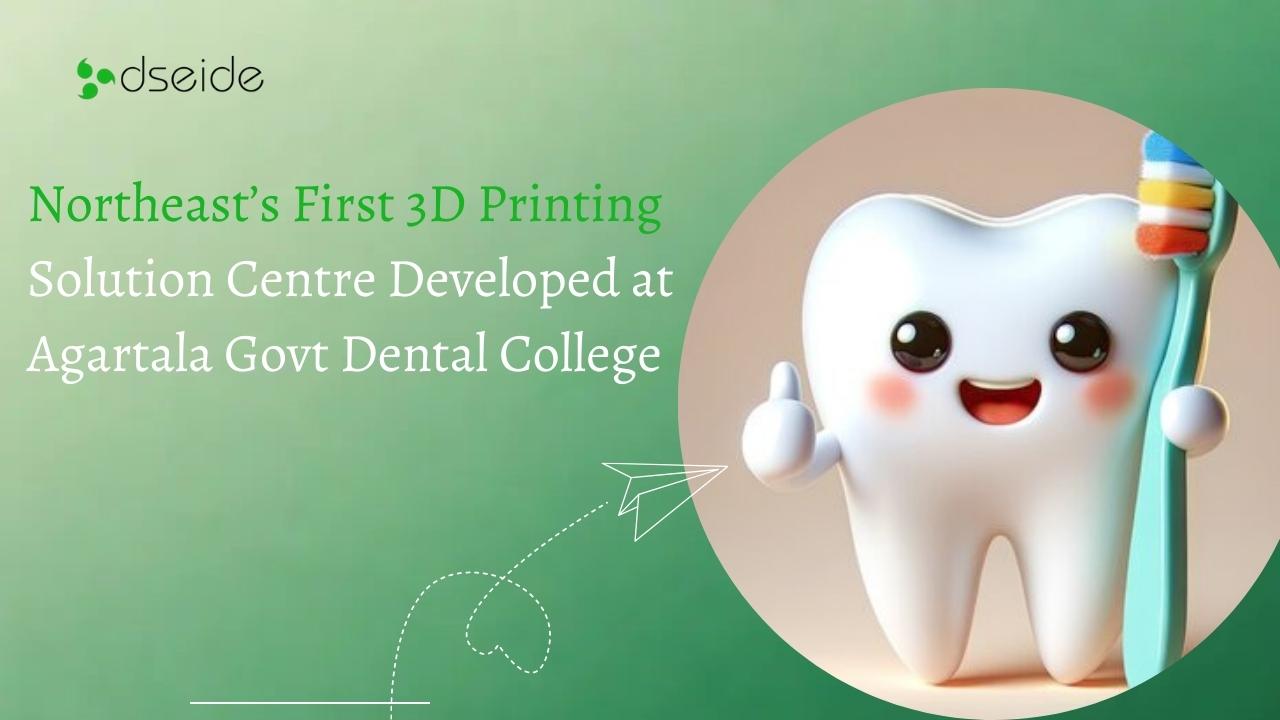DentalLink is a thriving community for dental professionals. We focus on fostering connections, sharing the latest in dental care techniques, and promoting oral health. Join us to collaborate with peers, stay updated on industry trends, and enhance your practice in the dental field.
-
Public Group
-
18 Posts
-
16 Photos
-
0 Videos
-
N/A
Recent Updates
-
#DentistAIAssistant we at Sahayak AI are passionate about harnessing the power of technology to improve healthcare delivery. Our latest product, Sahayak AI , is a voice-based AI assistant designed specifically for medical practitioners. This innovative tool can help
1) Streamline workflow
2) Enhance decision-making
3) Improve patient care
We have created a AI bot for the dentist who will book appointments, take care of the pre consultation and post consultation care. We can customise and bring more smiles to your patients reach out to us hi@sahayakai.xyz ( 9008328407 ) for more info.
https://drive.google.com/file/d/144Kuj1ISOMRAbuiCVQdv-NzmxrJOYeL_/view?usp=drive_link#DentistAIAssistant we at Sahayak AI are passionate about harnessing the power of technology to improve healthcare delivery. Our latest product, Sahayak AI , is a voice-based AI assistant designed specifically for medical practitioners. This innovative tool can help 1) Streamline workflow 2) Enhance decision-making 3) Improve patient care We have created a AI bot for the dentist who will book appointments, take care of the pre consultation and post consultation care. We can customise and bring more smiles to your patients reach out to us hi@sahayakai.xyz ( 9008328407 ) for more info. https://drive.google.com/file/d/144Kuj1ISOMRAbuiCVQdv-NzmxrJOYeL_/view?usp=drive_link2 Comments 0 Shares 5K Views
 19
19 Please log in to like, share and comment!
Please log in to like, share and comment! -
The Vital Role of AI in Dental Implantology
AI in dental implantology is transforming the future of dental care—have you ever wondered what this future looks like?
With technology advancing at breakneck speed, innovations that once seemed like science fiction are now transforming patient experiences right before our eyes. Artificial intelligence is one such development that is revolutionizing dentistry, especially when it comes to dental implants.ai in dental implantology
As many of you know first-hand, implants have become the preferred way to replace missing teeth for patients of all ages. Whether you’ve lost one tooth or all of them, these titanium posts integrate with the bone to securely support replacement teeth that look and function just like natural ones. Implants not only restore your confidence and quality of life, but also prevent bone loss in the jaw.
Now here’s the exciting part – AI is taking dental implant surgery and treatment to the next level when it comes to precision, efficiency and patient comfort. As AI continues its rapid growth in healthcare, dentists are leveraging this technology to analyze digital scans, design tailored dental implant systems and treatment plans and even assist during surgery. The days of implants being an intimidating prospect are long gone!
AI-driven software can examine X-rays and 3D images to identify anatomical structures, allowing for optimal implant positioning customized to your unique anatomy. The computer also simulates the implant site to determine the ideal technique for gentle, minimally invasive surgery. Some systems are even incorporating AI-controlled robotics to achieve greater accuracy than the human hand during the operation!
By understanding your specific case and using implant planning solutions accordingly, AI paves the way for faster procedures, shorter recovery times, improved durability and cosmetics. That means exceptional function and a naturally beautiful smile you can showcase with confidence. Sounds too good to be true? Believe it – the future is here and intelligent dental implantology is already changing lives!
The Evolution of AI in Implant Dentistry
While AI may seem like a very recent arrival transforming implant therapy, the foundations for this digital transformation have been slowly building for decades.
The Early Days – AI Shows Potential for Dental Analytics
The first inklings arose in the 1980s when pioneering researchers applied early machine learning algorithms to analyze radiographic scans. By detecting patterns in X-ray footage, these systems could accurately identify signs of periodontal disease – demonstrating AI’s potential to automate aspects of dental diagnostics.
Investigating Computer-Guided Implant Planning
In the 1990s, academics began investigating using AI for computer-guided implant surgery planning and simulation. However, widespread clinical adoption remained constrained at the time due to limitations in 3D imaging technology and insufficient computational power.
Digital Scanning Lays the Groundwork
The 2000s saw rapid adoption of digital intraoral scanning, CAD/CAM design, and advanced 3D imaging for dental applications. This proliferation of digital dentistry provided richer formatted patient data for AI algorithms to interpret, analyze, and provide automated design recommendations to dental professionals. The stage was being set by dental professionals for AI integration.
Modern Deep Learning Networks Propel Progress
The biggest accelerant came in the early 2010s with expansive growth in big data analytics and increases in graphical processing speeds enabling revolutionary deep learning frameworks. By 2015, convolutional neural networks were achieving new feats in healthcare imaging analytics. Combined with launches of specialty AI-assisted implant planning software platforms, rapid clinical validation and implementation followed.
Today’s Golden Age – Innovation Across Implant Care Workflows
Presently AI innovation continues advancing at a blistering pace. Processing more diverse clinical data than ever before, while exploring integral roles for AI automation, augmentation, and decision support across every implant workflow from optimized diagnosis to prognosis predictions to personalized restorative design and robotic-assistance.
And this energetic pace of progress shows no signs of slowing anytime soon. With ever-growing datasets and computational power, AI is poised to keep bringing disruptive changes – ushering dentistry into a new golden era of highly personalized, predictive and precise reconstructive care.
Enhancing Diagnostics and Treatment Planning
One of the most crucial steps for dental implant success is strategic treatment planning. Knowing exactly where to place the implants allows for a minimally invasive procedure, faster healing and an exceptionally natural-looking final result. Here’s how artificial intelligence steps in to take the guesswork out of implant placement.
Seeing Below the Surface
CBCT technology gives an in-depth, 3D view of oral anatomy to guide implant positioning. But all those images can be overwhelming! AI-powered software takes over the complex analysis to identify key structures like nerves, sinuses and blood vessels. By mapping out these areas to avoid, it determines the optimal sites for implant placement tailored to your unique anatomy. Talk about a digital eye for detail!
Test Driving the Implants
State-of-the-art programs don’t just show the best locations for implants on a scan. They actually simulate the entire procedure from start to finish! You can preview how the implants will align with surrounding teeth and bone as well as how lifelike your new smile will become – before stepping a foot into the dentist’s chair. It’s like taking the implants out for a virtual test drive first!
Surgery Made Simple
Once the AI software has engineered a custom treatment plan for your case, it designs a surgical guide to match. This 3D-printed template fits precisely over your teeth and acts as a GPS system to direct the dentist to the predetermined implant sites. By taking out the guesswork, this guided approach leads to quicker, gentler and minimally invasive placement compared to traditional methods. You can count on your AI guide to point the way towards an easier procedure.
The bottom line? AI technology takes the uncertainty out of identifying safe implant locations through pinpointed treatment planning. With diagnostic and treatment planning steps tailored to your unique anatomy, you can expect greater precision, faster healing and longer-lasting implant success.
Optimizing Implant Designs
Dental implants come in all different shapes and sizes to accommodate anatomy across the board. But what if you could have an implant specially crafted just for you? The age of patient-specific implants is within reach thanks to AI, model simulation and 3D-printing. Get ready for a completely tailored treatment approach down to the very last thread!
Your Implant, Your Way
Having implants made unique to your case may sound futuristic, but this ingenious technology already exists! AI programs can analyze your jaw measurements, bone quality, bite alignment and more to design an implant that fits like a puzzle piece. Computer simulation then tests out the custom creation virtually, modifying aspects like shape and thread pattern to promote optimal osseointegration into your bone structure. Think of it as an implant modeled specifically around your mouth!
Strength-Tested Engineering
Of course, all innovations have to hold up in the real world too. Once the intelligent software has devised your very own implant, the design first goes through rigorous testing protocols. Sophisticated analyses make microscopic tweaks for exceptional durability and biomechanical performance – fine-tuning it to support your replacement teeth for decades of lasting smiles. You’re involved every step of the way to provide key feedback before these new and improved implants are given the final stamp of approval.
The Advantage? Exceptional Osseointegration
This elaborate process results in an all dental implant system classification so incredibly customized to you, it’s like it grew naturally out of your bone! With morphology following your unique contours and engineering adjusted to your bite strength, custom implants Osseo integrate better to prevent failure. Paired with your bone-mimicking zirconia crown, no one but you will know your teeth aren’t the real deal. Now that’s something worth smiling about!
Predicting Outcomes and Reducing Complications
Considering investing in dental implants but worried about failure risks and complications? AI technology is working hard behind the scenes to calculate your likelihood of success. Here’s the inside scoop on how machine and deep learning approach guides dental implant surgery treatment plans while minimizing unpredictable treatment outcomes.
Calculating Your Odds
Remember earlier when we talked about AI analyzing patient scans? Now imagine that capability multiplied by thousands of cases! Machine learning technology combs through vast databases of dental records, including 3D anatomy, medical histories and lifestyle factors. By detecting patterns, it determines who is higher or lower risk for implant failure based on similarities to previous successful and unsuccessful surgeries. It’s like having a supercomputer statistician identify the best path forward!
Customizing Care to Lower Risk
The machine doesn’t stop after telling you the odds. Its predictive analytics actually suggest ways to optimize the dental implant surgery process and boost success specific to your situation. Those at higher risk may undergo more preparative procedures, specialty dental imaging done, different hardware or modified treatment sequencing. The AI may even advise an alternative tooth replacement method altogether if implants prove too risky. By personalizing care, it aims to stack the odds in your favor!
Source:-eastvillagedentaThe Vital Role of AI in Dental Implantology AI in dental implantology is transforming the future of dental care—have you ever wondered what this future looks like? With technology advancing at breakneck speed, innovations that once seemed like science fiction are now transforming patient experiences right before our eyes. Artificial intelligence is one such development that is revolutionizing dentistry, especially when it comes to dental implants.ai in dental implantology As many of you know first-hand, implants have become the preferred way to replace missing teeth for patients of all ages. Whether you’ve lost one tooth or all of them, these titanium posts integrate with the bone to securely support replacement teeth that look and function just like natural ones. Implants not only restore your confidence and quality of life, but also prevent bone loss in the jaw. Now here’s the exciting part – AI is taking dental implant surgery and treatment to the next level when it comes to precision, efficiency and patient comfort. As AI continues its rapid growth in healthcare, dentists are leveraging this technology to analyze digital scans, design tailored dental implant systems and treatment plans and even assist during surgery. The days of implants being an intimidating prospect are long gone! AI-driven software can examine X-rays and 3D images to identify anatomical structures, allowing for optimal implant positioning customized to your unique anatomy. The computer also simulates the implant site to determine the ideal technique for gentle, minimally invasive surgery. Some systems are even incorporating AI-controlled robotics to achieve greater accuracy than the human hand during the operation! By understanding your specific case and using implant planning solutions accordingly, AI paves the way for faster procedures, shorter recovery times, improved durability and cosmetics. That means exceptional function and a naturally beautiful smile you can showcase with confidence. Sounds too good to be true? Believe it – the future is here and intelligent dental implantology is already changing lives! The Evolution of AI in Implant Dentistry While AI may seem like a very recent arrival transforming implant therapy, the foundations for this digital transformation have been slowly building for decades. The Early Days – AI Shows Potential for Dental Analytics The first inklings arose in the 1980s when pioneering researchers applied early machine learning algorithms to analyze radiographic scans. By detecting patterns in X-ray footage, these systems could accurately identify signs of periodontal disease – demonstrating AI’s potential to automate aspects of dental diagnostics. Investigating Computer-Guided Implant Planning In the 1990s, academics began investigating using AI for computer-guided implant surgery planning and simulation. However, widespread clinical adoption remained constrained at the time due to limitations in 3D imaging technology and insufficient computational power. Digital Scanning Lays the Groundwork The 2000s saw rapid adoption of digital intraoral scanning, CAD/CAM design, and advanced 3D imaging for dental applications. This proliferation of digital dentistry provided richer formatted patient data for AI algorithms to interpret, analyze, and provide automated design recommendations to dental professionals. The stage was being set by dental professionals for AI integration. Modern Deep Learning Networks Propel Progress The biggest accelerant came in the early 2010s with expansive growth in big data analytics and increases in graphical processing speeds enabling revolutionary deep learning frameworks. By 2015, convolutional neural networks were achieving new feats in healthcare imaging analytics. Combined with launches of specialty AI-assisted implant planning software platforms, rapid clinical validation and implementation followed. Today’s Golden Age – Innovation Across Implant Care Workflows Presently AI innovation continues advancing at a blistering pace. Processing more diverse clinical data than ever before, while exploring integral roles for AI automation, augmentation, and decision support across every implant workflow from optimized diagnosis to prognosis predictions to personalized restorative design and robotic-assistance. And this energetic pace of progress shows no signs of slowing anytime soon. With ever-growing datasets and computational power, AI is poised to keep bringing disruptive changes – ushering dentistry into a new golden era of highly personalized, predictive and precise reconstructive care. Enhancing Diagnostics and Treatment Planning One of the most crucial steps for dental implant success is strategic treatment planning. Knowing exactly where to place the implants allows for a minimally invasive procedure, faster healing and an exceptionally natural-looking final result. Here’s how artificial intelligence steps in to take the guesswork out of implant placement. Seeing Below the Surface CBCT technology gives an in-depth, 3D view of oral anatomy to guide implant positioning. But all those images can be overwhelming! AI-powered software takes over the complex analysis to identify key structures like nerves, sinuses and blood vessels. By mapping out these areas to avoid, it determines the optimal sites for implant placement tailored to your unique anatomy. Talk about a digital eye for detail! Test Driving the Implants State-of-the-art programs don’t just show the best locations for implants on a scan. They actually simulate the entire procedure from start to finish! You can preview how the implants will align with surrounding teeth and bone as well as how lifelike your new smile will become – before stepping a foot into the dentist’s chair. It’s like taking the implants out for a virtual test drive first! Surgery Made Simple Once the AI software has engineered a custom treatment plan for your case, it designs a surgical guide to match. This 3D-printed template fits precisely over your teeth and acts as a GPS system to direct the dentist to the predetermined implant sites. By taking out the guesswork, this guided approach leads to quicker, gentler and minimally invasive placement compared to traditional methods. You can count on your AI guide to point the way towards an easier procedure. The bottom line? AI technology takes the uncertainty out of identifying safe implant locations through pinpointed treatment planning. With diagnostic and treatment planning steps tailored to your unique anatomy, you can expect greater precision, faster healing and longer-lasting implant success. Optimizing Implant Designs Dental implants come in all different shapes and sizes to accommodate anatomy across the board. But what if you could have an implant specially crafted just for you? The age of patient-specific implants is within reach thanks to AI, model simulation and 3D-printing. Get ready for a completely tailored treatment approach down to the very last thread! Your Implant, Your Way Having implants made unique to your case may sound futuristic, but this ingenious technology already exists! AI programs can analyze your jaw measurements, bone quality, bite alignment and more to design an implant that fits like a puzzle piece. Computer simulation then tests out the custom creation virtually, modifying aspects like shape and thread pattern to promote optimal osseointegration into your bone structure. Think of it as an implant modeled specifically around your mouth! Strength-Tested Engineering Of course, all innovations have to hold up in the real world too. Once the intelligent software has devised your very own implant, the design first goes through rigorous testing protocols. Sophisticated analyses make microscopic tweaks for exceptional durability and biomechanical performance – fine-tuning it to support your replacement teeth for decades of lasting smiles. You’re involved every step of the way to provide key feedback before these new and improved implants are given the final stamp of approval. The Advantage? Exceptional Osseointegration This elaborate process results in an all dental implant system classification so incredibly customized to you, it’s like it grew naturally out of your bone! With morphology following your unique contours and engineering adjusted to your bite strength, custom implants Osseo integrate better to prevent failure. Paired with your bone-mimicking zirconia crown, no one but you will know your teeth aren’t the real deal. Now that’s something worth smiling about! Predicting Outcomes and Reducing Complications Considering investing in dental implants but worried about failure risks and complications? AI technology is working hard behind the scenes to calculate your likelihood of success. Here’s the inside scoop on how machine and deep learning approach guides dental implant surgery treatment plans while minimizing unpredictable treatment outcomes. Calculating Your Odds Remember earlier when we talked about AI analyzing patient scans? Now imagine that capability multiplied by thousands of cases! Machine learning technology combs through vast databases of dental records, including 3D anatomy, medical histories and lifestyle factors. By detecting patterns, it determines who is higher or lower risk for implant failure based on similarities to previous successful and unsuccessful surgeries. It’s like having a supercomputer statistician identify the best path forward! Customizing Care to Lower Risk The machine doesn’t stop after telling you the odds. Its predictive analytics actually suggest ways to optimize the dental implant surgery process and boost success specific to your situation. Those at higher risk may undergo more preparative procedures, specialty dental imaging done, different hardware or modified treatment sequencing. The AI may even advise an alternative tooth replacement method altogether if implants prove too risky. By personalizing care, it aims to stack the odds in your favor! Source:-eastvillagedenta0 Comments 0 Shares 1K Views 11
11
-
New Study Links Gum Disease to Increased Risk of Alzheimer's
A recent study has found a strong connection between gum disease and Alzheimer's disease. Researchers believe that bacteria from the mouth can travel to the brain through the bloodstream, contributing to the development of Alzheimer's.
Key findings from the study:
Increased Risk: Individuals with gum disease were twice as likely to develop Alzheimer's compared to those with healthy gums.
Inflammation: Gum disease is associated with chronic inflammation, which can damage brain tissue.
Oral Bacteria: Bacteria from the mouth can enter the bloodstream and travel to the brain, potentially contributing to Alzheimer's development.
While more research is needed to fully understand the link between gum disease and Alzheimer's, these findings highlight the importance of maintaining good oral health. Regular dental check-ups, brushing, flossing, and avoiding excessive sugar intake can help reduce the risk of gum disease and, potentially, Alzheimer's.
While the study mentioned earlier provides a strong foundation for the connection between gum disease and Alzheimer's, there are several other aspects worth considering:
Specific Bacteria:
Porphyromonas gingivalis: This bacterium, commonly found in people with gum disease, has been identified as a potential culprit in the development of Alzheimer's.
Inflammation: Porphyromonas gingivalis can trigger inflammation in the brain, which can lead to the formation of amyloid plaques and neurofibrillary tangles, the hallmarks of Alzheimer's.
Preventive Measures:
Regular Dental Care: Consistent dental check-ups, brushing, flossing, and professional cleanings can help prevent gum disease.
Healthy Diet: A diet low in sugar and processed foods can also contribute to gum health.
Smoking Cessation: Smoking is a major risk factor for gum disease and should be avoided.
Ongoing Research:
Treatment Options: Researchers are investigating potential treatments for gum disease that may also help reduce the risk of Alzheimer's.
Early Detection: Early detection of both gum disease and Alzheimer's is crucial for effective management.
It's important to note that while the link between gum disease and Alzheimer's is promising, more research is needed to fully understand the causal relationship. By maintaining good oral health, individuals can potentially reduce their risk of both conditions.New Study Links Gum Disease to Increased Risk of Alzheimer's A recent study has found a strong connection between gum disease and Alzheimer's disease. Researchers believe that bacteria from the mouth can travel to the brain through the bloodstream, contributing to the development of Alzheimer's. Key findings from the study: Increased Risk: Individuals with gum disease were twice as likely to develop Alzheimer's compared to those with healthy gums. Inflammation: Gum disease is associated with chronic inflammation, which can damage brain tissue. Oral Bacteria: Bacteria from the mouth can enter the bloodstream and travel to the brain, potentially contributing to Alzheimer's development. While more research is needed to fully understand the link between gum disease and Alzheimer's, these findings highlight the importance of maintaining good oral health. Regular dental check-ups, brushing, flossing, and avoiding excessive sugar intake can help reduce the risk of gum disease and, potentially, Alzheimer's. While the study mentioned earlier provides a strong foundation for the connection between gum disease and Alzheimer's, there are several other aspects worth considering: Specific Bacteria: Porphyromonas gingivalis: This bacterium, commonly found in people with gum disease, has been identified as a potential culprit in the development of Alzheimer's. Inflammation: Porphyromonas gingivalis can trigger inflammation in the brain, which can lead to the formation of amyloid plaques and neurofibrillary tangles, the hallmarks of Alzheimer's. Preventive Measures: Regular Dental Care: Consistent dental check-ups, brushing, flossing, and professional cleanings can help prevent gum disease. Healthy Diet: A diet low in sugar and processed foods can also contribute to gum health. Smoking Cessation: Smoking is a major risk factor for gum disease and should be avoided. Ongoing Research: Treatment Options: Researchers are investigating potential treatments for gum disease that may also help reduce the risk of Alzheimer's. Early Detection: Early detection of both gum disease and Alzheimer's is crucial for effective management. It's important to note that while the link between gum disease and Alzheimer's is promising, more research is needed to fully understand the causal relationship. By maintaining good oral health, individuals can potentially reduce their risk of both conditions.0 Comments 0 Shares 1K Views
 10
10
-
The Future of Dental Care: 5 Upcoming Trends in 2024
As we look toward 2024, the dental industry is set to undergo a significant transformation. From innovative technologies to more patient-centric care models, these trends are redefining the future of oral health. Here’s a closer look at the five major trends poised to shape the dental care landscape:
1. Technological Advancements
Advances in dental technology, such as digital radiography and 3D printing, are revolutionizing diagnostics and treatment. Digital radiography offers clearer images with reduced radiation exposure, making it easier to detect dental issues early. Meanwhile, 3D printing enables precise, custom-made dental prosthetics that not only fit better but also speed up the treatment process, reducing wait times for patients. These advancements make dental care more efficient, accurate, and patient-friendly.
2. Personalized Treatment Plans
Personalized treatment plans are becoming the norm, replacing one-size-fits-all approaches. By analyzing a patient’s specific oral health conditions, genetic factors, and lifestyle, dentists can offer more tailored, effective treatments. This shift is helping patients receive care that’s better suited to their unique needs, resulting in improved long-term outcomes.
3. Tele-Dentistry: Remote Care Made Easy
Tele-dentistry is expanding access to dental care by offering virtual consultations and remote monitoring. Particularly beneficial in rural or underserved areas, tele-dentistry allows patients to connect with dentists via video calls and digital imaging, reducing the need for in-person visits. This trend also proved invaluable during public health crises, such as the COVID-19 pandemic, where minimizing in-office visits was crucial.
4. Biocompatible Materials
The rise of biocompatible materials is transforming dental treatments. These materials interact seamlessly with the body’s tissues, reducing the likelihood of adverse reactions. They offer durability, corrosion resistance, and natural aesthetics, making them ideal for dental implants, crowns, and fillings. This shift aligns with the growing demand for sustainable and health-conscious dental care solutions.
5. Artificial Intelligence (AI) in Dental Practices
AI is revolutionizing dental care by enhancing diagnostic accuracy, optimizing treatment planning, and automating administrative tasks. AI can analyze patient data, such as dental scans and medical histories, to help dentists make more informed decisions. For instance, AI-driven systems can detect cavities, gum disease, or oral cancer at earlier stages, enabling less invasive treatments and better patient outcomes.
Conclusion: A New Era in Dental Care
The convergence of technology, AI, and personalized care is setting the stage for a more precise, accessible, and efficient dental care experience in 2024. These trends promise to enhance patient outcomes while making dental services more convenient and sustainable. Whether it's through tele-dentistry, biocompatible materials, or cutting-edge diagnostics, the future of oral health is brighter than ever.
The future of dentistry is defined by these advancements, promising a patient-centered, innovative, and efficient approach to oral healthcare. As these trends take hold, both patients and dental professionals will experience the benefits of a more integrated and forward-thinking industry
source:-hhmglobalThe Future of Dental Care: 5 Upcoming Trends in 2024 As we look toward 2024, the dental industry is set to undergo a significant transformation. From innovative technologies to more patient-centric care models, these trends are redefining the future of oral health. Here’s a closer look at the five major trends poised to shape the dental care landscape: 1. Technological Advancements Advances in dental technology, such as digital radiography and 3D printing, are revolutionizing diagnostics and treatment. Digital radiography offers clearer images with reduced radiation exposure, making it easier to detect dental issues early. Meanwhile, 3D printing enables precise, custom-made dental prosthetics that not only fit better but also speed up the treatment process, reducing wait times for patients. These advancements make dental care more efficient, accurate, and patient-friendly. 2. Personalized Treatment Plans Personalized treatment plans are becoming the norm, replacing one-size-fits-all approaches. By analyzing a patient’s specific oral health conditions, genetic factors, and lifestyle, dentists can offer more tailored, effective treatments. This shift is helping patients receive care that’s better suited to their unique needs, resulting in improved long-term outcomes. 3. Tele-Dentistry: Remote Care Made Easy Tele-dentistry is expanding access to dental care by offering virtual consultations and remote monitoring. Particularly beneficial in rural or underserved areas, tele-dentistry allows patients to connect with dentists via video calls and digital imaging, reducing the need for in-person visits. This trend also proved invaluable during public health crises, such as the COVID-19 pandemic, where minimizing in-office visits was crucial. 4. Biocompatible Materials The rise of biocompatible materials is transforming dental treatments. These materials interact seamlessly with the body’s tissues, reducing the likelihood of adverse reactions. They offer durability, corrosion resistance, and natural aesthetics, making them ideal for dental implants, crowns, and fillings. This shift aligns with the growing demand for sustainable and health-conscious dental care solutions. 5. Artificial Intelligence (AI) in Dental Practices AI is revolutionizing dental care by enhancing diagnostic accuracy, optimizing treatment planning, and automating administrative tasks. AI can analyze patient data, such as dental scans and medical histories, to help dentists make more informed decisions. For instance, AI-driven systems can detect cavities, gum disease, or oral cancer at earlier stages, enabling less invasive treatments and better patient outcomes. Conclusion: A New Era in Dental Care The convergence of technology, AI, and personalized care is setting the stage for a more precise, accessible, and efficient dental care experience in 2024. These trends promise to enhance patient outcomes while making dental services more convenient and sustainable. Whether it's through tele-dentistry, biocompatible materials, or cutting-edge diagnostics, the future of oral health is brighter than ever. The future of dentistry is defined by these advancements, promising a patient-centered, innovative, and efficient approach to oral healthcare. As these trends take hold, both patients and dental professionals will experience the benefits of a more integrated and forward-thinking industry source:-hhmglobal0 Comments 0 Shares 1K Views 9
9
-
Growing Adoption of Digital Dentistry Digital dentistry continues to revolutionize the field with tools like 3D printing, digital imaging, and CAD/CAM (computer-aided design/computer-aided manufacturing) systems. These technologies are improving precision, reducing treatment times, and enhancing patient outcomes. Dentists are increasingly adopting digital impressions, allowing for quicker and more accurate creation of crowns, bridges, and implants.
AI in Dental Care Artificial Intelligence (AI) is playing a growing role in diagnosing dental issues. AI-powered software can now analyze X-rays and detect cavities, fractures, or other abnormalities with high accuracy, assisting dentists in offering better preventive care. This technology is also helping with treatment planning and patient monitoring.
Focus on Preventive Care There is a greater emphasis on preventive dental care to reduce the need for more invasive treatments. More patients are now focusing on regular check-ups, proper oral hygiene, and minimally invasive procedures like fluoride treatments and sealants to prevent decay and gum disease.
Dental Tourism Dental tourism continues to rise, with countries like Mexico, Thailand, and India becoming popular destinations for affordable yet high-quality dental care. Many patients from countries like the U.S. and U.K. are seeking treatments abroad to save on costs while still receiving excellent care. Dental implants, cosmetic procedures, and full-mouth restorations are among the most sought-after treatments.
Sustainability in Dental Practice There’s also growing awareness about sustainability in dentistry. Eco-friendly dental practices are gaining popularity, focusing on reducing plastic waste from single-use dental tools, using biodegradable materials, and encouraging energy-efficient practices.
These trends showcase the advancements and shifts in dental care, helping improve both patient experience and clinical outcomes.Growing Adoption of Digital Dentistry Digital dentistry continues to revolutionize the field with tools like 3D printing, digital imaging, and CAD/CAM (computer-aided design/computer-aided manufacturing) systems. These technologies are improving precision, reducing treatment times, and enhancing patient outcomes. Dentists are increasingly adopting digital impressions, allowing for quicker and more accurate creation of crowns, bridges, and implants. AI in Dental Care Artificial Intelligence (AI) is playing a growing role in diagnosing dental issues. AI-powered software can now analyze X-rays and detect cavities, fractures, or other abnormalities with high accuracy, assisting dentists in offering better preventive care. This technology is also helping with treatment planning and patient monitoring. Focus on Preventive Care There is a greater emphasis on preventive dental care to reduce the need for more invasive treatments. More patients are now focusing on regular check-ups, proper oral hygiene, and minimally invasive procedures like fluoride treatments and sealants to prevent decay and gum disease. Dental Tourism Dental tourism continues to rise, with countries like Mexico, Thailand, and India becoming popular destinations for affordable yet high-quality dental care. Many patients from countries like the U.S. and U.K. are seeking treatments abroad to save on costs while still receiving excellent care. Dental implants, cosmetic procedures, and full-mouth restorations are among the most sought-after treatments. Sustainability in Dental Practice There’s also growing awareness about sustainability in dentistry. Eco-friendly dental practices are gaining popularity, focusing on reducing plastic waste from single-use dental tools, using biodegradable materials, and encouraging energy-efficient practices. These trends showcase the advancements and shifts in dental care, helping improve both patient experience and clinical outcomes.0 Comments 0 Shares 1K Views

 13
13
-
Flags Communications Secures PR Mandate for FMS Dental Hospitals
Flags Communications has added another prestigious client to its portfolio by securing the Public Relations (PR) mandate of FMS Dental Hospitals, a leading dental care chain in Hyderabad and one of the largest dental hospitals in Southeast Asia. This strategic collaboration aims to enhance FMS Dental’s brand presence and solidify its reputation as a global leader in advanced dental care.
A Partnership to Strengthen FMS Dental’s Brand Presence
The partnership between Flags Communications and FMS Dental Hospitals comes at a time when the healthcare sector is witnessing a surge in demand for high-quality dental services. FMS Dental, which has been a pioneer in advanced dental care since its inception in 1993, is known for its state-of-the-art facilities and patient-centric approach. With 12 multispecialty branches across Hyderabad and a legacy spanning over three decades, FMS Dental has become synonymous with excellence in dental healthcare.
Commenting on the collaboration, Ayush Nambiar, Director of Flags Communications, expressed enthusiasm about the opportunity to work with such a reputed name in the dental industry. “Hyderabad is home to many top-tier healthcare facilities, and FMS Dental has earned its reputation through decades of exceptional patient care and innovation. Our goal is to make FMS Dental Hospitals a household name by highlighting its strengths and unique offerings through strategic PR initiatives,” Nambiar said. He also emphasized the core values at Flags Communications—speed, precision, and a solution-driven mindset—which have been instrumental in delivering success for their clients.
Strategic PR to Boost Visibility and Reputation
The focus of this PR mandate is to employ strategic communication techniques to amplify FMS Dental Hospitals’ visibility and establish a stronger media presence. With Flags Communications at the helm, the goal is to communicate FMS Dental’s story of innovation and commitment to excellence in a compelling way that resonates with its audience.
Ayush Nambiar further noted, “This partnership is poised to strengthen FMS Dental Hospital’s media presence and reputation in the healthcare sector. By employing strategic PR efforts, the collaboration will highlight FMS Dental’s innovative dental care services and commitment to excellence.”
A Vision for Growth and Excellence
Dr. Parthasarathi Reddy, Founder and Chairman of FMS Dental Hospitals, shared his excitement about this new association. “At FMS Dental, we constantly strive for excellence in patient care and innovation. With Flags Communications as our PR partner, we are confident that our story of world-class dental services and best-in-class patient care will resonate with the public, even more, solidifying our reputation as the best dental care provider,” Dr. Reddy stated.
The association with Flags Communications is a strategic move to expand FMS Dental’s reach and position the brand as the go-to destination for comprehensive and specialized dental care, not just in Hyderabad but also on a broader scale.
A Promising Collaboration
With this new partnership, Flags Communications will leverage its expertise in strategic communication and brand management to help FMS Dental Hospitals achieve its vision of being a global leader in advanced dental care. This collaboration is set to not only strengthen FMS Dental’s brand presence but also create impactful narratives that highlight the hospital’s achievements, innovations, and unparalleled patient care.
As the healthcare industry becomes increasingly competitive, effective communication and a robust media presence will play a crucial role in distinguishing leading healthcare providers. With Flags Communications by its side, FMS Dental Hospitals is well-positioned to continue its legacy of excellence and redefine the benchmarks for dental care.
source:-adgullyFlags Communications Secures PR Mandate for FMS Dental Hospitals Flags Communications has added another prestigious client to its portfolio by securing the Public Relations (PR) mandate of FMS Dental Hospitals, a leading dental care chain in Hyderabad and one of the largest dental hospitals in Southeast Asia. This strategic collaboration aims to enhance FMS Dental’s brand presence and solidify its reputation as a global leader in advanced dental care. A Partnership to Strengthen FMS Dental’s Brand Presence The partnership between Flags Communications and FMS Dental Hospitals comes at a time when the healthcare sector is witnessing a surge in demand for high-quality dental services. FMS Dental, which has been a pioneer in advanced dental care since its inception in 1993, is known for its state-of-the-art facilities and patient-centric approach. With 12 multispecialty branches across Hyderabad and a legacy spanning over three decades, FMS Dental has become synonymous with excellence in dental healthcare. Commenting on the collaboration, Ayush Nambiar, Director of Flags Communications, expressed enthusiasm about the opportunity to work with such a reputed name in the dental industry. “Hyderabad is home to many top-tier healthcare facilities, and FMS Dental has earned its reputation through decades of exceptional patient care and innovation. Our goal is to make FMS Dental Hospitals a household name by highlighting its strengths and unique offerings through strategic PR initiatives,” Nambiar said. He also emphasized the core values at Flags Communications—speed, precision, and a solution-driven mindset—which have been instrumental in delivering success for their clients. Strategic PR to Boost Visibility and Reputation The focus of this PR mandate is to employ strategic communication techniques to amplify FMS Dental Hospitals’ visibility and establish a stronger media presence. With Flags Communications at the helm, the goal is to communicate FMS Dental’s story of innovation and commitment to excellence in a compelling way that resonates with its audience. Ayush Nambiar further noted, “This partnership is poised to strengthen FMS Dental Hospital’s media presence and reputation in the healthcare sector. By employing strategic PR efforts, the collaboration will highlight FMS Dental’s innovative dental care services and commitment to excellence.” A Vision for Growth and Excellence Dr. Parthasarathi Reddy, Founder and Chairman of FMS Dental Hospitals, shared his excitement about this new association. “At FMS Dental, we constantly strive for excellence in patient care and innovation. With Flags Communications as our PR partner, we are confident that our story of world-class dental services and best-in-class patient care will resonate with the public, even more, solidifying our reputation as the best dental care provider,” Dr. Reddy stated. The association with Flags Communications is a strategic move to expand FMS Dental’s reach and position the brand as the go-to destination for comprehensive and specialized dental care, not just in Hyderabad but also on a broader scale. A Promising Collaboration With this new partnership, Flags Communications will leverage its expertise in strategic communication and brand management to help FMS Dental Hospitals achieve its vision of being a global leader in advanced dental care. This collaboration is set to not only strengthen FMS Dental’s brand presence but also create impactful narratives that highlight the hospital’s achievements, innovations, and unparalleled patient care. As the healthcare industry becomes increasingly competitive, effective communication and a robust media presence will play a crucial role in distinguishing leading healthcare providers. With Flags Communications by its side, FMS Dental Hospitals is well-positioned to continue its legacy of excellence and redefine the benchmarks for dental care. source:-adgully0 Comments 0 Shares 1K Views
 9
9
-
Bhagawaan Gopinath Trust Holds Free Dental Check-Up Camp at Purkhoo Migrant Camp
In keeping with its mission of providing accessible healthcare services, the Bhagawaan Gopinath Trust organized a free dental check-up camp at the community hall near Kralbab Ashram in the Purkhoo migrant camp on Sunday, September 22, 2024. The initiative aimed to extend much-needed dental care to underserved communities, reinforcing the Trust’s commitment to Bhagawaanji’s message of "service to man is service to God."
A Comprehensive Dental Care Initiative
Led by Dr. Rudra Kaul, a specialist in Endodontics, and assisted by doctors Dr. Rahul Kaul and Dr. Sunali Bhat, the medical team conducted thorough dental examinations for the attending patients. The camp was coordinated by Tej Krishen Raina, the Medical Mission's supervisor, who ensured the smooth running of the event. The team of doctors, supported by paramedical staff, provided detailed dental check-ups to address various oral health issues.
Many individuals in the migrant camp face limited access to healthcare services, particularly specialized care such as dental treatment. This camp not only offered professional assessments but also free medicines to those in need, helping them manage their oral health problems effectively.
Service to Humanity as a Core Principle
The Bhagawaan Gopinath Trust, known for its community-driven healthcare initiatives, regularly organizes medical camps across various regions. These camps are rooted in the teachings of Bhagawaanji, emphasizing that serving humanity is a form of divine service. Through their ongoing efforts, the Trust seeks to alleviate the healthcare challenges faced by economically weaker sections, particularly in migrant and displaced communities.
By providing free dental check-ups, medicines, and guidance, the Bhagawaan Gopinath Trust continues to offer meaningful support to those who may otherwise go without proper medical care. Their efforts help raise awareness about the importance of oral hygiene and encourage communities to prioritize their health.
Conclusion
This dental camp, like many of the Bhagawaan Gopinath Trust’s initiatives, was a step toward making healthcare accessible to all, regardless of socio-economic background. The Trust’s consistent dedication to the welfare of the underprivileged not only brings practical health solutions but also reinforces the enduring belief that serving others is a profound act of devotion.Bhagawaan Gopinath Trust Holds Free Dental Check-Up Camp at Purkhoo Migrant Camp In keeping with its mission of providing accessible healthcare services, the Bhagawaan Gopinath Trust organized a free dental check-up camp at the community hall near Kralbab Ashram in the Purkhoo migrant camp on Sunday, September 22, 2024. The initiative aimed to extend much-needed dental care to underserved communities, reinforcing the Trust’s commitment to Bhagawaanji’s message of "service to man is service to God." A Comprehensive Dental Care Initiative Led by Dr. Rudra Kaul, a specialist in Endodontics, and assisted by doctors Dr. Rahul Kaul and Dr. Sunali Bhat, the medical team conducted thorough dental examinations for the attending patients. The camp was coordinated by Tej Krishen Raina, the Medical Mission's supervisor, who ensured the smooth running of the event. The team of doctors, supported by paramedical staff, provided detailed dental check-ups to address various oral health issues. Many individuals in the migrant camp face limited access to healthcare services, particularly specialized care such as dental treatment. This camp not only offered professional assessments but also free medicines to those in need, helping them manage their oral health problems effectively. Service to Humanity as a Core Principle The Bhagawaan Gopinath Trust, known for its community-driven healthcare initiatives, regularly organizes medical camps across various regions. These camps are rooted in the teachings of Bhagawaanji, emphasizing that serving humanity is a form of divine service. Through their ongoing efforts, the Trust seeks to alleviate the healthcare challenges faced by economically weaker sections, particularly in migrant and displaced communities. By providing free dental check-ups, medicines, and guidance, the Bhagawaan Gopinath Trust continues to offer meaningful support to those who may otherwise go without proper medical care. Their efforts help raise awareness about the importance of oral hygiene and encourage communities to prioritize their health. Conclusion This dental camp, like many of the Bhagawaan Gopinath Trust’s initiatives, was a step toward making healthcare accessible to all, regardless of socio-economic background. The Trust’s consistent dedication to the welfare of the underprivileged not only brings practical health solutions but also reinforces the enduring belief that serving others is a profound act of devotion.0 Comments 0 Shares 1K Views 9
9
-
FMS Dental Launches Neuromuscular Dentistry: A New Era in Comprehensive Oral Care
Modern dentistry has evolved far beyond traditional treatments like fillings and cleanings, focusing on more intricate and comprehensive care. With the launch of its new Neuromuscular Dentistry specialty, FMS Dental has become a pioneer in this discipline, addressing complex conditions like temporomandibular joint (TMJ) disorders, orofacial pain, sleep apnea, and sports dentistry.
What is Neuromuscular Dentistry? Neuromuscular Dentistry is a specialized field that examines the relationships between the teeth, jaw, muscles, and nerves. It focuses on aligning the jaw and teeth to ensure a proper bite, which can alleviate various ailments caused by misalignment, such as TMJ disorders and related orofacial pain. This holistic approach not only improves dental health but also enhances the overall well-being of patients.
Dr. Parthasarathi Reddy, Founder & Chairman of FMS Dental, said, "Neuromuscular dentistry is a relatively new field in which our dedicated and well-trained team excels. Our specialists have received international training, and through their commitment and expertise, they have developed proven treatment protocols that have benefited hundreds of patients."
Conditions Addressed by Neuromuscular Dentistry
Temporomandibular Joint (TMJ) Disorders: TMJ disorders often cause abnormal jaw movements, making it difficult to achieve a stable bite. Patients may experience discomfort or pain while closing their mouth, affecting the muscles and nerves in the face and jaw.
Orofacial Pain (OFP): This includes neuropathic and neurovascular pain disorders, headaches, and sleep disorders. Symptoms may vary from headaches, neck and jaw pain, to unusual sensations like dizziness and tinnitus.
Sleep Apnea: A condition where patients repeatedly stop breathing during sleep, sleep apnea is often linked to jaw alignment issues. FMS Dental assesses sleep issues through sleep studies and offers treatments such as specialized appliances and nightlase protocols.
Sports Dentistry: The Dental Power Splint is an appliance based on neuromuscular principles that helps athletes by improving jaw alignment. It enhances balance, upper body strength, and reduces the risk of injuries.
Advanced Technology and Techniques FMS Dental uses cutting-edge tools like EMG sensors, jaw trackers, BioJVA (Joint Vibrational Analysis), TENS units, and low-level laser therapy to diagnose and treat neuromuscular disorders. Their in-house lab specializes in custom-fabricated appliances like occlusal splints and power splints, ensuring precise adjustments that address specific patient needs.
A New Standard of Care FMS Dental’s introduction of Neuromuscular Dentistry represents a significant milestone in dental care, providing a specialized approach that combines innovative techniques with years of clinical experience. This new specialty enhances the scope of dental treatment and offers solutions to complex neuromuscular issues that affect patients' quality of life.
With this launch, FMS Dental continues to lead the way in providing comprehensive and compassionate care, addressing not only dental health but overall well-being. Whether managing TMJ disorders, sleep apnea, or sports-related injuries, their team’s expertise and commitment are transforming the landscape of modern dental care.
source:-thehansindiaFMS Dental Launches Neuromuscular Dentistry: A New Era in Comprehensive Oral Care Modern dentistry has evolved far beyond traditional treatments like fillings and cleanings, focusing on more intricate and comprehensive care. With the launch of its new Neuromuscular Dentistry specialty, FMS Dental has become a pioneer in this discipline, addressing complex conditions like temporomandibular joint (TMJ) disorders, orofacial pain, sleep apnea, and sports dentistry. What is Neuromuscular Dentistry? Neuromuscular Dentistry is a specialized field that examines the relationships between the teeth, jaw, muscles, and nerves. It focuses on aligning the jaw and teeth to ensure a proper bite, which can alleviate various ailments caused by misalignment, such as TMJ disorders and related orofacial pain. This holistic approach not only improves dental health but also enhances the overall well-being of patients. Dr. Parthasarathi Reddy, Founder & Chairman of FMS Dental, said, "Neuromuscular dentistry is a relatively new field in which our dedicated and well-trained team excels. Our specialists have received international training, and through their commitment and expertise, they have developed proven treatment protocols that have benefited hundreds of patients." Conditions Addressed by Neuromuscular Dentistry Temporomandibular Joint (TMJ) Disorders: TMJ disorders often cause abnormal jaw movements, making it difficult to achieve a stable bite. Patients may experience discomfort or pain while closing their mouth, affecting the muscles and nerves in the face and jaw. Orofacial Pain (OFP): This includes neuropathic and neurovascular pain disorders, headaches, and sleep disorders. Symptoms may vary from headaches, neck and jaw pain, to unusual sensations like dizziness and tinnitus. Sleep Apnea: A condition where patients repeatedly stop breathing during sleep, sleep apnea is often linked to jaw alignment issues. FMS Dental assesses sleep issues through sleep studies and offers treatments such as specialized appliances and nightlase protocols. Sports Dentistry: The Dental Power Splint is an appliance based on neuromuscular principles that helps athletes by improving jaw alignment. It enhances balance, upper body strength, and reduces the risk of injuries. Advanced Technology and Techniques FMS Dental uses cutting-edge tools like EMG sensors, jaw trackers, BioJVA (Joint Vibrational Analysis), TENS units, and low-level laser therapy to diagnose and treat neuromuscular disorders. Their in-house lab specializes in custom-fabricated appliances like occlusal splints and power splints, ensuring precise adjustments that address specific patient needs. A New Standard of Care FMS Dental’s introduction of Neuromuscular Dentistry represents a significant milestone in dental care, providing a specialized approach that combines innovative techniques with years of clinical experience. This new specialty enhances the scope of dental treatment and offers solutions to complex neuromuscular issues that affect patients' quality of life. With this launch, FMS Dental continues to lead the way in providing comprehensive and compassionate care, addressing not only dental health but overall well-being. Whether managing TMJ disorders, sleep apnea, or sports-related injuries, their team’s expertise and commitment are transforming the landscape of modern dental care. source:-thehansindia0 Comments 0 Shares 1K Views 11
11
-
Is My Dentist Scamming Me? The Reality of Dental Care and Insurance
Many people have had that moment of doubt after a visit to the dentist: "Is my dentist trying to scam me?" It's a question more common than you might think. As discussed in a recent Vox interview with Dr. Lisa Simon, a dentist and physician, the differences in how dental care and medical care are paid for can make the experience feel confusing and sometimes suspicious. But is there any truth behind this feeling, or are we just misinterpreting how dental practices operate?
Why Dentistry Feels Different from Medical Care
One major reason that dentistry feels different from traditional medical care is the way it's billed and how insurance works. When you visit a doctor, there's often a clear distinction between recommended procedures and their costs. But at the dentist, many patients feel unsure about what’s necessary and what’s not. You may walk in for a cleaning and walk out with a long list of procedures that weren't even on your radar. This can make the entire experience feel like you're being upsold.
Dr. Simon points out that most dentists operate in private practice, meaning their income is tied to the procedures they perform. While this doesn't mean they're scamming you, it does create a potential for conflict: their financial well-being might push them to recommend more procedures, while you, as the patient, may be resistant to paying for anything you don’t absolutely need.
Is the "Mechanic's Principle" at Play?
Dr. Simon compares the experience of visiting a dentist to taking your car to a mechanic. If a mechanic tells you that your car needs a repair, you likely don’t have the expertise to judge whether it’s truly necessary. The same can be said for dentistry. Without a professional understanding of dental health, how can you know if that filling or root canal is essential or if the dentist is being overly aggressive in their treatment plan?
Dentistry isn't a one-size-fits-all field. Some dentists take a more conservative approach, opting to monitor a problem before jumping to a procedure, while others prefer to address issues early. This variability can sometimes be mistaken for dishonesty, but in reality, it may simply reflect a difference in professional judgment.
Why Is Dental Work So Expensive?
Another issue that fuels the feeling of being scammed is the cost of dental care. Unlike medical insurance, which typically covers expensive treatments, dental insurance doesn’t work the same way. In fact, calling it "insurance" might be misleading. As Dr. Simon explains, dental insurance functions more like a discount plan. Routine care, such as cleanings or X-rays, might be free or heavily discounted, but for major procedures, you're often left paying a large percentage of the cost out of pocket. This can make dental work seem exorbitantly expensive compared to the coverage you’re used to with medical care.
Dental insurance originated in the mid-20th century as a perk for union members, not as a comprehensive health care solution. It was designed to make routine dental visits more affordable, not to cover catastrophic dental expenses the way medical insurance is intended to shield you from huge hospital bills. This historical divide between medicine and dentistry has persisted, creating a system where major dental procedures often feel financially overwhelming.
So, Is Your Dentist Scamming You?
The reality is that most dentists are not out to scam you. While it may feel like you’re being taken advantage of, much of the discomfort stems from the system itself — the way dental care is paid for, billed, and insured. The incentives for dentists and patients are not always aligned, but that doesn't mean every dentist is looking to overcharge.
That said, it's always a good idea to be an informed patient. Don’t hesitate to ask questions about why a procedure is being recommended, get second opinions, and understand what your insurance covers. Building trust with your dentist can go a long way in making your visits feel less like a scam and more like an investment in your long-term health.
suorce:-vox
Is My Dentist Scamming Me? The Reality of Dental Care and Insurance Many people have had that moment of doubt after a visit to the dentist: "Is my dentist trying to scam me?" It's a question more common than you might think. As discussed in a recent Vox interview with Dr. Lisa Simon, a dentist and physician, the differences in how dental care and medical care are paid for can make the experience feel confusing and sometimes suspicious. But is there any truth behind this feeling, or are we just misinterpreting how dental practices operate? Why Dentistry Feels Different from Medical Care One major reason that dentistry feels different from traditional medical care is the way it's billed and how insurance works. When you visit a doctor, there's often a clear distinction between recommended procedures and their costs. But at the dentist, many patients feel unsure about what’s necessary and what’s not. You may walk in for a cleaning and walk out with a long list of procedures that weren't even on your radar. This can make the entire experience feel like you're being upsold. Dr. Simon points out that most dentists operate in private practice, meaning their income is tied to the procedures they perform. While this doesn't mean they're scamming you, it does create a potential for conflict: their financial well-being might push them to recommend more procedures, while you, as the patient, may be resistant to paying for anything you don’t absolutely need. Is the "Mechanic's Principle" at Play? Dr. Simon compares the experience of visiting a dentist to taking your car to a mechanic. If a mechanic tells you that your car needs a repair, you likely don’t have the expertise to judge whether it’s truly necessary. The same can be said for dentistry. Without a professional understanding of dental health, how can you know if that filling or root canal is essential or if the dentist is being overly aggressive in their treatment plan? Dentistry isn't a one-size-fits-all field. Some dentists take a more conservative approach, opting to monitor a problem before jumping to a procedure, while others prefer to address issues early. This variability can sometimes be mistaken for dishonesty, but in reality, it may simply reflect a difference in professional judgment. Why Is Dental Work So Expensive? Another issue that fuels the feeling of being scammed is the cost of dental care. Unlike medical insurance, which typically covers expensive treatments, dental insurance doesn’t work the same way. In fact, calling it "insurance" might be misleading. As Dr. Simon explains, dental insurance functions more like a discount plan. Routine care, such as cleanings or X-rays, might be free or heavily discounted, but for major procedures, you're often left paying a large percentage of the cost out of pocket. This can make dental work seem exorbitantly expensive compared to the coverage you’re used to with medical care. Dental insurance originated in the mid-20th century as a perk for union members, not as a comprehensive health care solution. It was designed to make routine dental visits more affordable, not to cover catastrophic dental expenses the way medical insurance is intended to shield you from huge hospital bills. This historical divide between medicine and dentistry has persisted, creating a system where major dental procedures often feel financially overwhelming. So, Is Your Dentist Scamming You? The reality is that most dentists are not out to scam you. While it may feel like you’re being taken advantage of, much of the discomfort stems from the system itself — the way dental care is paid for, billed, and insured. The incentives for dentists and patients are not always aligned, but that doesn't mean every dentist is looking to overcharge. That said, it's always a good idea to be an informed patient. Don’t hesitate to ask questions about why a procedure is being recommended, get second opinions, and understand what your insurance covers. Building trust with your dentist can go a long way in making your visits feel less like a scam and more like an investment in your long-term health. suorce:-vox0 Comments 0 Shares 1K Views 10
10
-
Upcoming IPOs: PMEA Solar Tech Solutions and Laxmi Dental Set to Raise Funds for Growth and Innovation
Two companies from diverse sectors—PMEA Solar Tech Solutions and Laxmi Dental Ltd—are gearing up to go public, having recently filed their draft papers with the Securities and Exchange Board of India (SEBI). Both companies aim to raise significant capital through their respective Initial Public Offerings (IPOs), setting the stage for growth, innovation, and expansion.
PMEA Solar Tech Solutions IPO: Empowering Solar Energy Infrastructure
PMEA Solar Tech Solutions, a leader in solar tracking and mounting systems, is looking to raise approximately ₹600 crore through a combination of fresh equity issuance and an Offer for Sale (OFS) of up to 1.12 crore shares by its promoters. Additionally, the company has left the door open for a pre-IPO placement of ₹120 crore, which could reduce the fresh issuance size if completed.
Founded in 2006, PMEA Solar Tech Solutions is at the forefront of the renewable energy sector, focusing on solar tracking and mounting equipment. The funds raised through the IPO will be allocated towards setting up new manufacturing facilities, acquiring machinery, debt repayment, and other general corporate purposes. With an annual installed capacity of 16 gigawatts (GW) for module mounting assembly and 6 GW of rolled products, PMEA Solar Tech Solutions is poised for significant growth in the renewable energy market.
Laxmi Dental IPO: Revolutionizing the Dental Products Industry
Laxmi Dental, a leading manufacturer of end-to-end dental solutions, is also preparing to enter the public market. The company plans to raise ₹150 crore through a fresh issue of shares, with an additional Offer for Sale (OFS) of 1.28 crore shares by its promoters and other investors, including OrbiMed Asia II Mauritius Ltd, which will be divesting its stake.
Laxmi Dental is an innovative dental products company with a comprehensive portfolio ranging from custom-made bridges and crowns to paediatric products and aligner solutions. The fresh proceeds from the IPO will be invested in its subsidiary Bizdent Devices, used to purchase machinery, and repay debts. This strategic move will enable Laxmi Dental to continue providing cutting-edge dental solutions while expanding its footprint in the growing dental care market.
Key Takeaways for Investors
Both PMEA Solar Tech Solutions and Laxmi Dental Ltd offer exciting investment opportunities in sectors that are poised for rapid expansion—renewable energy and dental products. While PMEA Solar is set to benefit from the global shift towards sustainable energy, Laxmi Dental's growth is aligned with the increasing demand for advanced dental care solutions.
As these companies move closer to their IPO dates, they stand ready to capitalize on fresh investments, scale operations, and position themselves as leaders in their respective industries. For investors, these IPOs represent a chance to be part of two fast-growing sectors that are critical to the future: clean energy and healthcare innovation.
Stay tuned for updates on the IPO timelines and final pricing as these companies prepare to hit the public market, offering a unique chance to invest in their promising futures.
source:-upstox
Upcoming IPOs: PMEA Solar Tech Solutions and Laxmi Dental Set to Raise Funds for Growth and Innovation Two companies from diverse sectors—PMEA Solar Tech Solutions and Laxmi Dental Ltd—are gearing up to go public, having recently filed their draft papers with the Securities and Exchange Board of India (SEBI). Both companies aim to raise significant capital through their respective Initial Public Offerings (IPOs), setting the stage for growth, innovation, and expansion. PMEA Solar Tech Solutions IPO: Empowering Solar Energy Infrastructure PMEA Solar Tech Solutions, a leader in solar tracking and mounting systems, is looking to raise approximately ₹600 crore through a combination of fresh equity issuance and an Offer for Sale (OFS) of up to 1.12 crore shares by its promoters. Additionally, the company has left the door open for a pre-IPO placement of ₹120 crore, which could reduce the fresh issuance size if completed. Founded in 2006, PMEA Solar Tech Solutions is at the forefront of the renewable energy sector, focusing on solar tracking and mounting equipment. The funds raised through the IPO will be allocated towards setting up new manufacturing facilities, acquiring machinery, debt repayment, and other general corporate purposes. With an annual installed capacity of 16 gigawatts (GW) for module mounting assembly and 6 GW of rolled products, PMEA Solar Tech Solutions is poised for significant growth in the renewable energy market. Laxmi Dental IPO: Revolutionizing the Dental Products Industry Laxmi Dental, a leading manufacturer of end-to-end dental solutions, is also preparing to enter the public market. The company plans to raise ₹150 crore through a fresh issue of shares, with an additional Offer for Sale (OFS) of 1.28 crore shares by its promoters and other investors, including OrbiMed Asia II Mauritius Ltd, which will be divesting its stake. Laxmi Dental is an innovative dental products company with a comprehensive portfolio ranging from custom-made bridges and crowns to paediatric products and aligner solutions. The fresh proceeds from the IPO will be invested in its subsidiary Bizdent Devices, used to purchase machinery, and repay debts. This strategic move will enable Laxmi Dental to continue providing cutting-edge dental solutions while expanding its footprint in the growing dental care market. Key Takeaways for Investors Both PMEA Solar Tech Solutions and Laxmi Dental Ltd offer exciting investment opportunities in sectors that are poised for rapid expansion—renewable energy and dental products. While PMEA Solar is set to benefit from the global shift towards sustainable energy, Laxmi Dental's growth is aligned with the increasing demand for advanced dental care solutions. As these companies move closer to their IPO dates, they stand ready to capitalize on fresh investments, scale operations, and position themselves as leaders in their respective industries. For investors, these IPOs represent a chance to be part of two fast-growing sectors that are critical to the future: clean energy and healthcare innovation. Stay tuned for updates on the IPO timelines and final pricing as these companies prepare to hit the public market, offering a unique chance to invest in their promising futures. source:-upstox0 Comments 0 Shares 1K Views 8
8
-
Essential Tips for Maintaining Oral Health During Menopause
While the hormonal changes during menopause can impact your dental health, there are several ways to combat these effects and keep your teeth and gums healthy. Here are some expert-recommended tips to maintain good oral hygiene during menopause:
1. Prioritize Good Oral Hygiene
Good oral hygiene is the foundation of healthy teeth and gums, especially during menopause. Brush your teeth at least twice a day with fluoride toothpaste, and make sure to floss daily. An electric toothbrush can be more effective than a manual one in removing plaque and preventing gum disease. Make sure to reach out to your dentist if you’re unsure about your brushing technique or need guidance.
2. Stay Hydrated to Combat Dry Mouth
Since dry mouth is a common issue during menopause, staying hydrated is crucial. Drink plenty of water throughout the day to help maintain saliva production. You can also use over-the-counter dry mouth sprays, lozenges, or rinses to alleviate discomfort. In more severe cases, consult your dentist about prescription medications that can increase saliva production.
3. Schedule Regular Dental Check-ups
Regular dental visits are essential during menopause to catch any issues early. Dr. Sally Cram, a periodontist, advises that women undergoing menopause should ask their dentist whether more frequent check-ups are necessary, especially if they are experiencing symptoms like gum recession or dry mouth. In-office fluoride treatments can also help strengthen teeth and reduce the risk of decay.
4. Consider High-Fluoride Toothpaste
For additional protection against tooth decay, your dentist may recommend prescription-strength fluoride toothpaste. This can help fortify your enamel and protect exposed tooth roots, which are more vulnerable to cavities when gums recede.
5. Eat a Balanced Diet Rich in Calcium
A diet rich in calcium and other essential nutrients is vital for maintaining bone density, including in your jaw. Women going through menopause should focus on eating calcium-rich foods such as dairy products, leafy greens, and fortified foods. Vitamin D is equally important as it helps the body absorb calcium, so consider supplements if necessary, particularly if you have limited sun exposure.
6. Manage Gum Recession
Gum recession during menopause can expose your tooth roots, leading to sensitivity and an increased risk of decay. Ask your dentist about specific treatments for gum recession, such as deep cleaning procedures or gum grafting, which can protect the tooth roots and help restore healthy gum tissue.
7. Address Periodontal Disease Early
If you notice signs of gum disease, such as redness, swelling, or bleeding gums, seek treatment immediately. Periodontal disease can progress quickly, leading to tooth loss if not addressed. Regular professional cleanings, combined with excellent at-home care, can help prevent gum disease from worsening.
8. Seek Treatment for Burning Mouth Syndrome
If you experience burning sensations in your mouth, talk to your dentist or doctor. Burning Mouth Syndrome can be managed with medications, lifestyle changes, and treatments that address the underlying causes, such as hormonal imbalances or nutritional deficiencies.
The Importance of Proactive Dental Care
The key to maintaining a healthy smile during menopause is proactive care. By paying attention to changes in your oral health and taking preventive measures, you can minimize the impact of hormonal fluctuations on your teeth and gums.
Dr. Sollecito emphasizes that “most oral conditions and problems during menopause are totally preventable” if you take the right steps. Regular dental visits, good oral hygiene, staying hydrated, and eating a nutrient-rich diet can make all the difference in keeping your smile bright and healthy.
Conclusion: Embrace Menopause with a Healthy Smile
Menopause is a natural phase of life, but it comes with its own set of challenges, including those related to dental health. Understanding the connection between hormonal changes and oral health is the first step in preventing issues like dry mouth, gum recession, and bone density loss. By following expert tips and maintaining a consistent dental care routine, you can navigate menopause with confidence and preserve your beautiful smile for years to come.
So, take charge of your dental health today and ensure that your smile stays as radiant as ever, no matter what changes menopause may bring!
source:- hindustantimeEssential Tips for Maintaining Oral Health During Menopause While the hormonal changes during menopause can impact your dental health, there are several ways to combat these effects and keep your teeth and gums healthy. Here are some expert-recommended tips to maintain good oral hygiene during menopause: 1. Prioritize Good Oral Hygiene Good oral hygiene is the foundation of healthy teeth and gums, especially during menopause. Brush your teeth at least twice a day with fluoride toothpaste, and make sure to floss daily. An electric toothbrush can be more effective than a manual one in removing plaque and preventing gum disease. Make sure to reach out to your dentist if you’re unsure about your brushing technique or need guidance. 2. Stay Hydrated to Combat Dry Mouth Since dry mouth is a common issue during menopause, staying hydrated is crucial. Drink plenty of water throughout the day to help maintain saliva production. You can also use over-the-counter dry mouth sprays, lozenges, or rinses to alleviate discomfort. In more severe cases, consult your dentist about prescription medications that can increase saliva production. 3. Schedule Regular Dental Check-ups Regular dental visits are essential during menopause to catch any issues early. Dr. Sally Cram, a periodontist, advises that women undergoing menopause should ask their dentist whether more frequent check-ups are necessary, especially if they are experiencing symptoms like gum recession or dry mouth. In-office fluoride treatments can also help strengthen teeth and reduce the risk of decay. 4. Consider High-Fluoride Toothpaste For additional protection against tooth decay, your dentist may recommend prescription-strength fluoride toothpaste. This can help fortify your enamel and protect exposed tooth roots, which are more vulnerable to cavities when gums recede. 5. Eat a Balanced Diet Rich in Calcium A diet rich in calcium and other essential nutrients is vital for maintaining bone density, including in your jaw. Women going through menopause should focus on eating calcium-rich foods such as dairy products, leafy greens, and fortified foods. Vitamin D is equally important as it helps the body absorb calcium, so consider supplements if necessary, particularly if you have limited sun exposure. 6. Manage Gum Recession Gum recession during menopause can expose your tooth roots, leading to sensitivity and an increased risk of decay. Ask your dentist about specific treatments for gum recession, such as deep cleaning procedures or gum grafting, which can protect the tooth roots and help restore healthy gum tissue. 7. Address Periodontal Disease Early If you notice signs of gum disease, such as redness, swelling, or bleeding gums, seek treatment immediately. Periodontal disease can progress quickly, leading to tooth loss if not addressed. Regular professional cleanings, combined with excellent at-home care, can help prevent gum disease from worsening. 8. Seek Treatment for Burning Mouth Syndrome If you experience burning sensations in your mouth, talk to your dentist or doctor. Burning Mouth Syndrome can be managed with medications, lifestyle changes, and treatments that address the underlying causes, such as hormonal imbalances or nutritional deficiencies. The Importance of Proactive Dental Care The key to maintaining a healthy smile during menopause is proactive care. By paying attention to changes in your oral health and taking preventive measures, you can minimize the impact of hormonal fluctuations on your teeth and gums. Dr. Sollecito emphasizes that “most oral conditions and problems during menopause are totally preventable” if you take the right steps. Regular dental visits, good oral hygiene, staying hydrated, and eating a nutrient-rich diet can make all the difference in keeping your smile bright and healthy. Conclusion: Embrace Menopause with a Healthy Smile Menopause is a natural phase of life, but it comes with its own set of challenges, including those related to dental health. Understanding the connection between hormonal changes and oral health is the first step in preventing issues like dry mouth, gum recession, and bone density loss. By following expert tips and maintaining a consistent dental care routine, you can navigate menopause with confidence and preserve your beautiful smile for years to come. So, take charge of your dental health today and ensure that your smile stays as radiant as ever, no matter what changes menopause may bring! source:- hindustantime0 Comments 0 Shares 2K Views 8
8
-
Dental Health and Hormones: Can Hormones Affect Oral Health?
Hormonal fluctuations throughout a person’s life can have a significant impact on oral health, particularly for women. Changes in hormone levels can make gums more sensitive and susceptible to plaque, leading to oral health issues. Understanding the connection between hormonal health and dental care is key to maintaining a healthy smile, especially during key phases like pregnancy, menopause, and beyond.
1. Brushing and Flossing: The Basics
While it may seem obvious, brushing and flossing daily are essential practices in maintaining oral health, especially during hormonal changes. Hormonal fluctuations can increase the risk of plaque buildup, which is the main cause of gingivitis and cavities. Consistently removing plaque with proper oral hygiene can help reduce these risks.
2. Smile Through the Storm: Oral Health During Pregnancy
During pregnancy, estrogen and progesterone levels surge, making gums more susceptible to inflammation. This can result in pregnancy gingivitis, a condition characterized by swollen, tender, and sometimes bleeding gums. It’s important to maintain an oral hygiene routine and visit your dentist regularly to prevent or manage these symptoms during pregnancy.
3. Now, Let’s Talk About Menopause
Menopause brings its own set of oral health challenges. One of the most common is dry mouth, a condition where saliva production decreases. Saliva plays a crucial role in washing away harmful bacteria and keeping the mouth healthy. Without enough saliva, bacteria can accumulate, increasing the risk of cavities and other dental issues. For some women, hormonal changes during menopause may also contribute to the loosening or even loss of teeth. If these symptoms become frequent or severe, it’s important to consult a dentist for proper guidance and care.
4. Diet: A Key Player in Oral Health
Your diet plays a crucial role in your overall oral health, particularly during times of hormonal change. Sugary foods and beverages can fuel plaque bacteria, contributing to tooth decay and gum disease. But it’s not just about avoiding certain foods; making conscious dietary choices can greatly benefit your oral health. Focus on consuming nutrient-rich foods that promote gum health, such as leafy greens, dairy products, and foods high in calcium and vitamin D. These can support the health of your teeth and gums as your hormones fluctuate.
5. Regular Dental Checkups: Stay Ahead of the Curve
Routine dental visits become even more important when your body is experiencing hormonal changes. Regular checkups allow your dentist to catch potential problems early and provide personalized advice based on your unique dental needs. A proactive approach to oral health can help manage the effects of hormones on your teeth and gums.
6. Dry Mouth Relief
If you are dealing with dry mouth due to hormonal changes, don’t hesitate to ask your dentist for solutions. They can prescribe specialized mouthwashes or lozenges to help stimulate saliva production. Open communication with your dentist ensures that you can maintain good oral health, even when hormonal shifts complicate matters. Remember, your dentist is there to listen and support you through your health journey.
In Summary
Hormones can have a surprising impact on your oral health, especially during pregnancy and menopause. By maintaining a strong oral hygiene routine, visiting your dentist regularly, and making smart dietary choices, you can protect your teeth and gums through every phase of life.
If you’re experiencing any unusual symptoms related to hormonal changes, such as gum sensitivity, dry mouth, or other oral health issues, be sure to speak with your dentist. They can help tailor your dental care to your body’s needs, ensuring your smile stays bright and healthy.
Stay informed, take control of your oral health, and keep smiling through every stage of life!
source:- goognight sleepDental Health and Hormones: Can Hormones Affect Oral Health? Hormonal fluctuations throughout a person’s life can have a significant impact on oral health, particularly for women. Changes in hormone levels can make gums more sensitive and susceptible to plaque, leading to oral health issues. Understanding the connection between hormonal health and dental care is key to maintaining a healthy smile, especially during key phases like pregnancy, menopause, and beyond. 1. Brushing and Flossing: The Basics While it may seem obvious, brushing and flossing daily are essential practices in maintaining oral health, especially during hormonal changes. Hormonal fluctuations can increase the risk of plaque buildup, which is the main cause of gingivitis and cavities. Consistently removing plaque with proper oral hygiene can help reduce these risks. 2. Smile Through the Storm: Oral Health During Pregnancy During pregnancy, estrogen and progesterone levels surge, making gums more susceptible to inflammation. This can result in pregnancy gingivitis, a condition characterized by swollen, tender, and sometimes bleeding gums. It’s important to maintain an oral hygiene routine and visit your dentist regularly to prevent or manage these symptoms during pregnancy. 3. Now, Let’s Talk About Menopause Menopause brings its own set of oral health challenges. One of the most common is dry mouth, a condition where saliva production decreases. Saliva plays a crucial role in washing away harmful bacteria and keeping the mouth healthy. Without enough saliva, bacteria can accumulate, increasing the risk of cavities and other dental issues. For some women, hormonal changes during menopause may also contribute to the loosening or even loss of teeth. If these symptoms become frequent or severe, it’s important to consult a dentist for proper guidance and care. 4. Diet: A Key Player in Oral Health Your diet plays a crucial role in your overall oral health, particularly during times of hormonal change. Sugary foods and beverages can fuel plaque bacteria, contributing to tooth decay and gum disease. But it’s not just about avoiding certain foods; making conscious dietary choices can greatly benefit your oral health. Focus on consuming nutrient-rich foods that promote gum health, such as leafy greens, dairy products, and foods high in calcium and vitamin D. These can support the health of your teeth and gums as your hormones fluctuate. 5. Regular Dental Checkups: Stay Ahead of the Curve Routine dental visits become even more important when your body is experiencing hormonal changes. Regular checkups allow your dentist to catch potential problems early and provide personalized advice based on your unique dental needs. A proactive approach to oral health can help manage the effects of hormones on your teeth and gums. 6. Dry Mouth Relief If you are dealing with dry mouth due to hormonal changes, don’t hesitate to ask your dentist for solutions. They can prescribe specialized mouthwashes or lozenges to help stimulate saliva production. Open communication with your dentist ensures that you can maintain good oral health, even when hormonal shifts complicate matters. Remember, your dentist is there to listen and support you through your health journey. In Summary Hormones can have a surprising impact on your oral health, especially during pregnancy and menopause. By maintaining a strong oral hygiene routine, visiting your dentist regularly, and making smart dietary choices, you can protect your teeth and gums through every phase of life. If you’re experiencing any unusual symptoms related to hormonal changes, such as gum sensitivity, dry mouth, or other oral health issues, be sure to speak with your dentist. They can help tailor your dental care to your body’s needs, ensuring your smile stays bright and healthy. Stay informed, take control of your oral health, and keep smiling through every stage of life! source:- goognight sleep0 Comments 0 Shares 2K Views 10
10
-
Karnataka's Government Dental College Set for Major Revamp with Cutting-Edge Technology
BENGALURU: The Government Dental College and Research Institute (GDC&RI), one of India's oldest and most esteemed dental institutions, is undergoing a significant transformation with the introduction of state-of-the-art equipment and facilities.
During the graduation ceremony and the inauguration of a new digital dentistry wing at the institute, Dr. Sharan Prakash Patil, Minister for Medical Education and Skill Development, announced plans for the college's modernization. Dr. Patil highlighted the institution's rich legacy and emphasized that it is a source of pride for Karnataka, necessitating upgrades across all areas. He promised that the college would soon feature the latest in advanced dental technology.
The newly launched digital dentistry center, the first of its kind in a government hospital, is equipped with cutting-edge technologies such as computer-aided design and manufacturing (CAD/CAM) systems, which revolutionize restorative dentistry by enabling precise and efficient production of dental prosthetics. The center also includes Cone Beam Computed Tomography (CBCT) for enhanced diagnostic accuracy in complex oral surgery and implantology cases and Microscopic Endodontics to improve precision and success rates in root canal treatments.
Additionally, the integration of Polymerase Chain Reaction (PCR) technology will allow for faster and more accurate detection and treatment of dental infections. Dr. Patil emphasized that these advanced facilities put the college on par with the best institutions globally, providing students and faculty with access to the latest technological breakthroughs in dentistry.
Dr. Patil also reminded graduates of the importance of patient care, urging them to treat every patient with respect and recognize the crucial role of effective communication in patient-centric care.
source:- the new time Indian express
Karnataka's Government Dental College Set for Major Revamp with Cutting-Edge Technology BENGALURU: The Government Dental College and Research Institute (GDC&RI), one of India's oldest and most esteemed dental institutions, is undergoing a significant transformation with the introduction of state-of-the-art equipment and facilities. During the graduation ceremony and the inauguration of a new digital dentistry wing at the institute, Dr. Sharan Prakash Patil, Minister for Medical Education and Skill Development, announced plans for the college's modernization. Dr. Patil highlighted the institution's rich legacy and emphasized that it is a source of pride for Karnataka, necessitating upgrades across all areas. He promised that the college would soon feature the latest in advanced dental technology. The newly launched digital dentistry center, the first of its kind in a government hospital, is equipped with cutting-edge technologies such as computer-aided design and manufacturing (CAD/CAM) systems, which revolutionize restorative dentistry by enabling precise and efficient production of dental prosthetics. The center also includes Cone Beam Computed Tomography (CBCT) for enhanced diagnostic accuracy in complex oral surgery and implantology cases and Microscopic Endodontics to improve precision and success rates in root canal treatments. Additionally, the integration of Polymerase Chain Reaction (PCR) technology will allow for faster and more accurate detection and treatment of dental infections. Dr. Patil emphasized that these advanced facilities put the college on par with the best institutions globally, providing students and faculty with access to the latest technological breakthroughs in dentistry. Dr. Patil also reminded graduates of the importance of patient care, urging them to treat every patient with respect and recognize the crucial role of effective communication in patient-centric care. source:- the new time Indian express0 Comments 0 Shares 2K Views 14
14
-
Chinese Man Undergoes Extensive Dental Surgery, Dies of Heart Attack Two Weeks Later
In a case that has raised serious concerns about the safety of dental procedures in China, a man surnamed Huang underwent an extensive dental treatment at Yongkang Deway Dental Hospital in Jinhua, Zhejiang province, on August 14. During the procedure, 23 teeth were extracted, and 12 implants were inserted in a single day using the "immediate restoration" method. Unfortunately, two weeks after the surgery, Huang suffered a sudden heart attack and passed away on August 28. The incident came to public attention through an online post by his daughter, Shu, on September 2.
According to Shu, her father had been experiencing severe pain following the dental procedure. "I never thought my dad would pass so quickly," she said. "He didn't even get the chance to drive the new car we bought for him."
On September 3, an official from the Yongkang Municipal Health Bureau commented that the cause of death remains under investigation, especially considering the 13-day period between the dental procedure and Huang's death.
A few days later, a representative from the clinic told the South China Morning Post that the case had been handed over to their legal team and that no further comments would be made until the investigation is complete. "We will release a statement if there are any updates," the representative stated.
Xiang Guolin, director of the Dental Medicine Centre at the Hospital of Universal Love in Wuhan, noted that there are no formal guidelines regarding the maximum number of teeth that can be extracted in a single session. However, in common practice, dentists typically avoid extracting more than 10 teeth at once. "Extracting 23 teeth is quite extreme," Xiang said. "Such a procedure requires a highly qualified clinic and dentist, as well as a thorough consideration of the patient's physical ability to endure such extensive treatment."
The case has sparked outrage on social media, with many users questioning the wisdom of extracting so many teeth in one sitting. One user expressed shock, recounting how their own dentist had refused to extract two wisdom teeth simultaneously. Another user, who identified themselves as a dentist, commented, "I never extract more than three teeth at one time unless they're very loose. This seems more like a human experiment than a dental procedure."
source:-NDTV WORLD
Chinese Man Undergoes Extensive Dental Surgery, Dies of Heart Attack Two Weeks Later In a case that has raised serious concerns about the safety of dental procedures in China, a man surnamed Huang underwent an extensive dental treatment at Yongkang Deway Dental Hospital in Jinhua, Zhejiang province, on August 14. During the procedure, 23 teeth were extracted, and 12 implants were inserted in a single day using the "immediate restoration" method. Unfortunately, two weeks after the surgery, Huang suffered a sudden heart attack and passed away on August 28. The incident came to public attention through an online post by his daughter, Shu, on September 2. According to Shu, her father had been experiencing severe pain following the dental procedure. "I never thought my dad would pass so quickly," she said. "He didn't even get the chance to drive the new car we bought for him." On September 3, an official from the Yongkang Municipal Health Bureau commented that the cause of death remains under investigation, especially considering the 13-day period between the dental procedure and Huang's death. A few days later, a representative from the clinic told the South China Morning Post that the case had been handed over to their legal team and that no further comments would be made until the investigation is complete. "We will release a statement if there are any updates," the representative stated. Xiang Guolin, director of the Dental Medicine Centre at the Hospital of Universal Love in Wuhan, noted that there are no formal guidelines regarding the maximum number of teeth that can be extracted in a single session. However, in common practice, dentists typically avoid extracting more than 10 teeth at once. "Extracting 23 teeth is quite extreme," Xiang said. "Such a procedure requires a highly qualified clinic and dentist, as well as a thorough consideration of the patient's physical ability to endure such extensive treatment." The case has sparked outrage on social media, with many users questioning the wisdom of extracting so many teeth in one sitting. One user expressed shock, recounting how their own dentist had refused to extract two wisdom teeth simultaneously. Another user, who identified themselves as a dentist, commented, "I never extract more than three teeth at one time unless they're very loose. This seems more like a human experiment than a dental procedure." source:-NDTV WORLD0 Comments 0 Shares 2K Views 7
7
-
Northeast’s First 3D Printing Solution Centre Developed at Agartala Govt Dental College
Agartala, Sep 10, 2024, TRIPURATIMES Desk
Agartala, Sept 10: Tripura Chief Minister Dr. Manik Saha inaugurated Northeast India’s first 3D Printing Solution Centre at Agartala Government Dental College on Tuesday.
Speaking at the event, Dr. Saha, who also holds the Health portfolio, emphasized the state government's commitment to establishing an education and health hub in Tripura, highlighting these sectors as priority areas.
“We are working to establish an education and health hub in the state. I spoke with Union Health Minister J.P. Nadda about setting up Homeopathy and Ayurvedic Medical Colleges. We must try. We are working to establish an AIIMS- or RIMS-like hospital. Kidney transplants were something we never thought of,” Dr. Saha remarked.
He expressed pride in this new achievement, stating that the inauguration of the 3D Printing Solution Centre adds another feather in the cap of Agartala Government Dental College.
“Dental College was a dream project for us. We made several efforts to open this institution. Even during the previous government’s tenure, 10 years ago, we tried to open such a college. But whenever you aim to do something good, there will always be negative-minded people trying to prevent it. We know the struggles we faced to start the Dental College," he said.
Dr. Saha noted that advancements in science, particularly in the field of dentistry, are rapidly evolving, and the new 3D printing lab is a reflection of this progress. The use of AI at the 3D Printing Solution Centre is expected to reduce the load on the OPD.
"I was very pleased when the first batch of the Dental College passed with good results. It was heartening to see this. With our excellent faculty, students are able to achieve good marks. We want Agartala Government Dental College to become a model institution in the country. Everyone should know about this college. I urge the faculty to use the latest technology,” he added.
He further announced that Tripura is the first state in the Northeast to establish a 3D Printing Solution Centre in a Dental College.
“This is a huge achievement. Surgeries, bone grafting, and various advanced procedures, including bloodless operations, are all taking place here. More than 100 patients visit this hospital daily. Prime Minister Narendra Modi inaugurated this Dental College, and it is our responsibility to maintain its reputation. Over 3,000 patients visit here monthly. I am confident the institution will continue to develop. Around 20 students have enrolled in the second batch,” said Dr. Saha.
The event was attended by Health Secretary Kiran Gitte, Tammu Jamoh, Director (Science and Technology), Ministry of DoNER, Director of Health Services Prof. Dr. Sanjeeb Kumar Debbarma, Dr. H.P. Sharma, Director of Medical Education, and other dignitaries.
Northeast’s First 3D Printing Solution Centre Developed at Agartala Govt Dental College Agartala, Sep 10, 2024, TRIPURATIMES Desk Agartala, Sept 10: Tripura Chief Minister Dr. Manik Saha inaugurated Northeast India’s first 3D Printing Solution Centre at Agartala Government Dental College on Tuesday. Speaking at the event, Dr. Saha, who also holds the Health portfolio, emphasized the state government's commitment to establishing an education and health hub in Tripura, highlighting these sectors as priority areas. “We are working to establish an education and health hub in the state. I spoke with Union Health Minister J.P. Nadda about setting up Homeopathy and Ayurvedic Medical Colleges. We must try. We are working to establish an AIIMS- or RIMS-like hospital. Kidney transplants were something we never thought of,” Dr. Saha remarked. He expressed pride in this new achievement, stating that the inauguration of the 3D Printing Solution Centre adds another feather in the cap of Agartala Government Dental College. “Dental College was a dream project for us. We made several efforts to open this institution. Even during the previous government’s tenure, 10 years ago, we tried to open such a college. But whenever you aim to do something good, there will always be negative-minded people trying to prevent it. We know the struggles we faced to start the Dental College," he said. Dr. Saha noted that advancements in science, particularly in the field of dentistry, are rapidly evolving, and the new 3D printing lab is a reflection of this progress. The use of AI at the 3D Printing Solution Centre is expected to reduce the load on the OPD. "I was very pleased when the first batch of the Dental College passed with good results. It was heartening to see this. With our excellent faculty, students are able to achieve good marks. We want Agartala Government Dental College to become a model institution in the country. Everyone should know about this college. I urge the faculty to use the latest technology,” he added. He further announced that Tripura is the first state in the Northeast to establish a 3D Printing Solution Centre in a Dental College. “This is a huge achievement. Surgeries, bone grafting, and various advanced procedures, including bloodless operations, are all taking place here. More than 100 patients visit this hospital daily. Prime Minister Narendra Modi inaugurated this Dental College, and it is our responsibility to maintain its reputation. Over 3,000 patients visit here monthly. I am confident the institution will continue to develop. Around 20 students have enrolled in the second batch,” said Dr. Saha. The event was attended by Health Secretary Kiran Gitte, Tammu Jamoh, Director (Science and Technology), Ministry of DoNER, Director of Health Services Prof. Dr. Sanjeeb Kumar Debbarma, Dr. H.P. Sharma, Director of Medical Education, and other dignitaries.0 Comments 0 Shares 2K Views8
-
Oral Health and Dental Care Products Market: Trends, Growth, and Future Outlook (2023-2032)"The global market for oral health and dental care products is experiencing rapid growth, driven by increased awareness of dental hygiene and the rising demand for innovative oral care solutions. According to the latest report by MRA, the market was valued at USD 12.90 billion in 2022 and is projected to grow at a compound annual growth rate (CAGR) of 8.0%, reaching USD 23.85 billion by 2032....0 Comments 0 Shares 3K Views
 8
8
-
-
More Stories





